issuu.com/alamodosomagazine


See their ad page 140/141






issuu.com/alamodosomagazine


See their ad page 140/141





interest inquired about your ra�oning schedule, then you'd have been in luck. You see, you would have been the sugar! It was a common way to ask a young woman if she had a boyfriend or if she was single and khaki wacky.
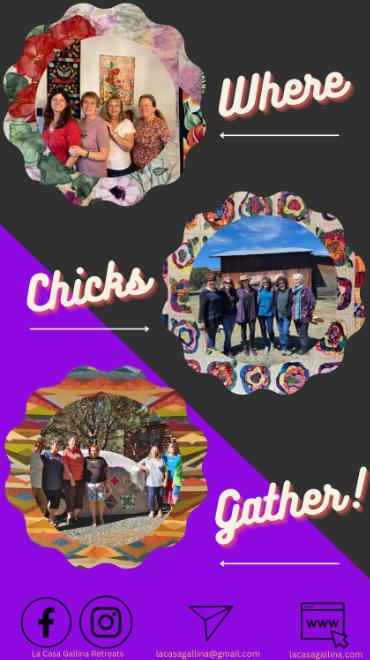
What's buzzin' cousin?

A much more useful expression, it was used as a general gree�ng, like "what's up?"
Killer-Diller Used to express that something is cool or of high quality. For example, "Charlie Chaplin's new movie was killer-diller!"
Give me a Bell
If you had a reputa�on as the doll dizzy type, then you were well known to only have eyes for one thing — the ladies!
we already know that back in the '40s, gents had the phrase doll dizzy, so it's only right that the women get an equivalent. To call a lady a khaki wacky was just like calling a man a doll dizzy.
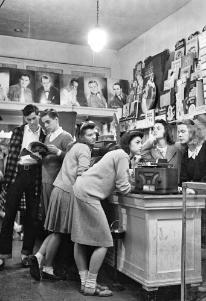
Sugar, are you ra�oned?
pick-up lines were very different during the war years. If a love
Way back when, phones weren't the high-tech gadgets they are today. This request meant that you wanted someone to call you, as folks used to actually look forward to a ringing phone.
You might be thinking this term has something to do with the space race, but you can get those images of rockets and satellites out of your head. The real meaning is much more down to Earth — literally. And that's because Earth pads are the strips of rubber keeping your feet off the dirt, otherwise known as shoes.
slapping and dapping paint around, believing the paint and colors will all work together in �me.
With my playful pink, purple and New Mexico turquoise pale�e, my landscapes offer the viewer a fresh look of a familiar place encourging revival.”
“I am a big color ar�st blooming atop the high mountains of Southern New Mexico

I am a wife, mother of four boys, painter, clothing designer and singer.

I use high energy shades that match my personality and love for this one life that I have been given.
Working from photos, I amp up the hues, giving the subject a surprising and deligh�ul fresh look. Staring with a heavy texture, I o�en draw or carve into the medium with my fingers, or scribble words of ancient and wisdom and then enjoy the secret of covering and layering on this founda�on.
“Don’t be afraid to destroy” is my mantra when I am in flow
Samantha lives in Cloudcro�. Her work can be seen both in public places as well as private homes in West Texas and southern New Mexico. She is a member of the Cloudcro� Art Society.
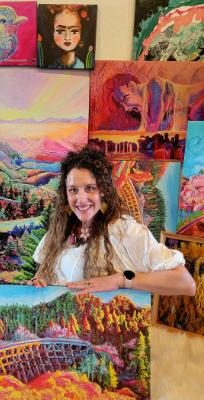

Good knives are the engines of the kitchen—slicing, dicing, chopping, and, of course, cu�ng— which makes them the shining (steel) stars of meal prep. While it might be temp�ng to throw them in the dishwasher, press a bu�on, and wait for the heat cycle to work its magic, this is not the ideal method for keeping your knives in top shape.
That is why you shouldn't wash chef's knives and other kitchen knives in the dishwasher. The biggest misconcep�on about cleaning knives is that they can be washed in the same manner as other kitchen utensils. A dishwasher can be detrimental to the quality of your knife," she says. "They are o�en too abrasive, and based on the type of detergent used, the process can cause rust or corrosion.
You might as well s�ck your knife in a washing machine! The washcycle can bang your knife around and compromise its sharp edge. A

rogue knife can also cut up the plas�c coa�ng on your dishwasher shelves and expose the metal undercoat to rust.
All knives, regardless of blade or handle material, should be hand washed in warm water, rinsed, and immediately dried

Knives should never be le� soaking in water, as it would lead to rust of the blade and handle
Never places your knives in the sink un�l your ready to clean them. This bars any contact from other dishes or pots and pans in the sink to prevent blade damage. Placing blades in your dishwater can also be dangerous as you can't see what's beneath the water.

Don't handle the blade. Hold the knife by the handle and use a sponge to wipe toward the blade's edge or wrap the sponge around the back of the blade and pull the knife through.
Drying knives straight away can help prevent possible blade damage. Using a co�on towel is a be�er choice than air-drying. Wiping a knife dry and then immediately returning it to its storage space is highly recommended, as le�ng a knife air dry lets water sit on the blade for longer and opens the opportunity for the blade to be damaged while it is le� out. Le�ng water sit on the blade can lead to tarnishing or rust, even if a knife is stainless steel.

Those driving down New York Avenue in Alamogordo, New Mexico passing the corner of 12th and New York are typically intrigued by the large palm trees and the beau�ful courtyard, wondering of the history of the building? Most have no idea the history of the building some locals recall it as the old Coke Plant, newcomers as the “building with all the palm trees.”
In June 1921, L.H. Karosen, the third owner of the Alamogordo Bo�ling Works, began adver�sing Coca-Cola in the Alamogordo News. This was the first �me that the top-selling cola drink had been adver�sed in the town and was probably the first �me it was available at all.

Tom Charles Tours
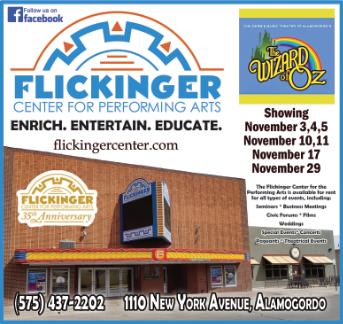
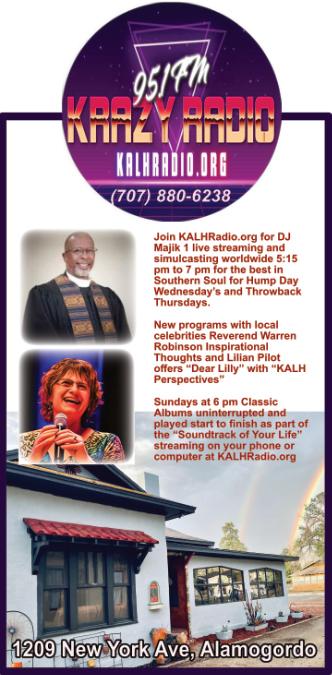
Hope Smith had began bo�ling Coca-Cola at El Paso only a decade earlier – in 1911.

Karosen did not become the official franchiser un�l August 6, 1921, and he con�nued to carry Coca-Cola – never officially called “Coke” yet – un�l he sold the bo�ling works in 1922.
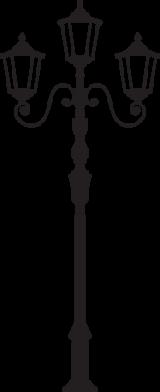
Story con�nues page 22
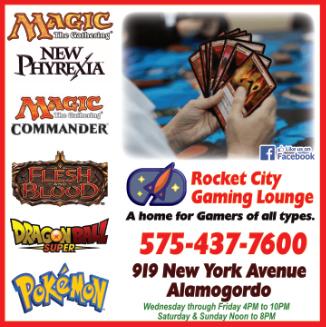

There is no ancient culture on earth that doesn't include d�gons in its folklore and myths. Even the Inuit people have a reptilian d�gon-like mon�er in their folklore, while living far from any actual reptiles.
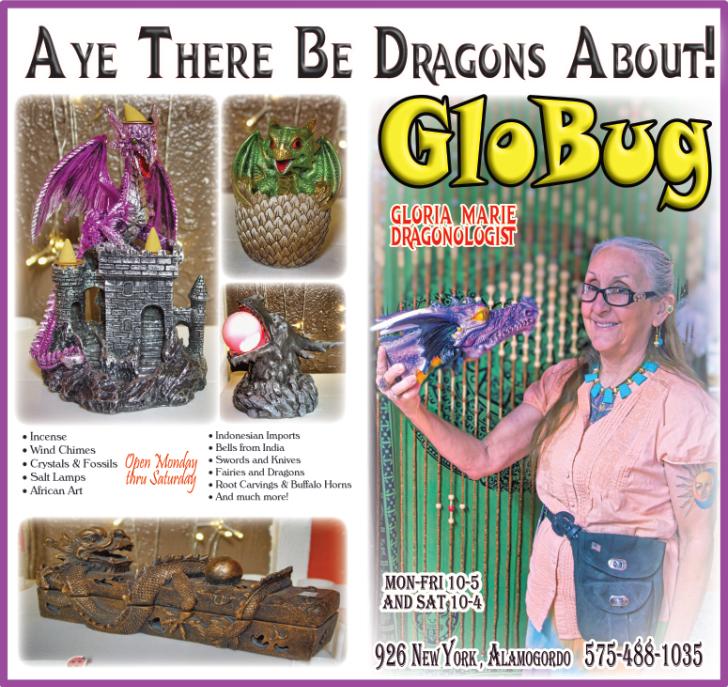
Dragons appear in the folklore and myths of every culture around the world. Dragons first appeared in ancient Mesopotamian art and literature. The Mušḫuššu, pronounced "Mush·khush·shu," was a scaly dragon with hind legs like the talons of an eagle, feline forelegs, a long neck and

tail, a horned head, a snakelike tongue, and a crest.
The Mušḫuššu is depicted on the famous Ishtar Gate of the city of Babylon, which dates to the sixth century BC.
In ancient Egyp�an mythology, there was a dragon named Apep who embodied chaos and was the opponent of light and truth. Apep was first men�oned during the Eighth Dynasty, which dates from 2190 & 2165 BC.

It was thought that the se�ng of the sun was caused by the god Ra descending to the underworld to ba�le Apep.
Story con�nues page 17
In Job 41:1–34 of the Hebrew bible, the dragon Leviathan is described as exhaling fire and smoke.
The prophet Daniel is described as feeding a dragon "cakes of pitch, fat and hair" which caused the dragon to burst open and die.
A dragon is first men�oned in ancient Greek literature in The Iliad, where King Agamemnon has a blue dragon mo�f on his sword belt, and the emblem of a three-headed dragon on his breast plate.
In India, there lived the dragon Vritra who was the personifica�on of drought, and who blocked the courses of rivers. Vritra was heroically slain by the deity Indra.
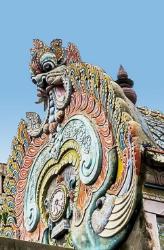
Con�nues next page
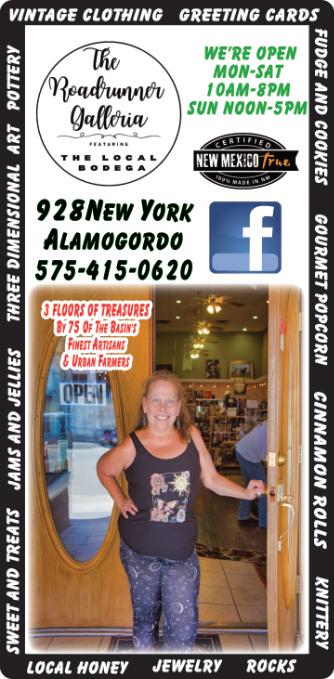

Farther north, in Norse mythology, are the dragons Jörmungandr, Níðhöggr, and Fafnir. The hero Sigurd catches Fafnir by digging a pit between Fafnir's cave and the spring where he drinks, then Sigurd stabs Fafnir, and on Odin's advice, he drinks his blood. This gives Sigurd the ability to understand the language of birds.
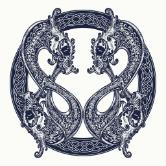
In the epic Anglo-Saxon poem Beowulf, created between 975 and 1025 AD, the hero Beowulf is mortally wounded by a dragon. Also, in ancient Great Britain lived the Wyvern, a two-legged dragon who showed up on various heraldry, such as shields and coats of arms.
European interest in dragons peaked between the eleventh and thirteenth centuries. A medieval bes�ary, which is a trea�se on real or mythical animals,
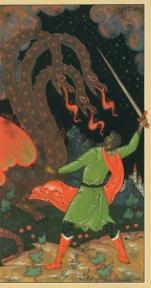
that dates to 1260 AD displays the earliest known Western dragon.
In the 11th century, France had the story of Saint George and the Dragon. That dragon had a voracious appe�te for both sheep and children un�l George rode into town.
In Russia, there lived the three-headed dragon Zmey Gorynych.
Dragons appear throughout Chinese history, with their images gracing Neolithic and Bronze Age pottery. The Miao people of southwest China have a story that a divine dragon created the first humans by breathing on monkeys that
Story con�nues page 33


His successor, D.H. Pharr, con�nued to adver�se the brand. A.B. Rose acquired the business in April 1923 and ini�ally con�nued to adver�sed Coca-Cola.
Rose stopped adver�sing a�er 1924 and discon�nued the Coca-Cola franchise at some point, probably in mid1927.
It is probable that the filled bo�les were shipped by rail from El Paso to Alamogordo.

The history of the building dates to the 1950s
About 1950, a gentleman named Hope Smith commissioned his brother-inlaw, C.A. Goe�ng, to build the small warehouse near the corner of New York and Twel�h Street in Alamogordo, New Mexico. The new warehouse was to be used to serve Otero and Lincoln Coun�es. Smith, himself, o�en rode on delivery trucks, including the ones that made the long haul to m Alamogordo before the construc�on of the new warehouse. On one delivery trip in New Mexico, a driver (not Smith) was in a White truck (which Smith disliked and distrusted) and was involved in an accident where the truck rolled over. The accident resulted in two major changes. The first came soon: Smith decided to open a bo�ling plant in Alamogordo.
The second came a bit later when he phased out White trucks in favor of vehicles from General Motors.
In early 1955, the construc�on of the plant for the Coca-Cola Bo�ling Co. of Alamogordo was completed.
The building was constructed with fire resistant concrete and steel masonry with roofs of red �le s�ll seen today. Interior walls were painted a “smooth, glossy white,” and the outside walls were stuccoed with concrete and painted white. The original contract called for a total price of $98,482.00, and the firm charged an addi�onal $497.91 for “extras and credits.” Goedding agreed to the price, and Smith paid the contractors –the plant was completed at a cost of $98,979.91
$98,979.91 in 1955 is worth $1,129,002.52 in 2023
The proposed new plant was “to be a duplicate of the CocaCola plant in El Paso “and was planned to be in opera�on by “late spring of 1955.”
The plant began bo�ling on October 1, 1955, a�er an inspec�on by “one of the chemists from Atlanta Coca-Cola laboratories”who gave the plant “a grade as near perfect as could be ascertained.” The building occupied 16,000 square feet of
floor space and had the “very latest bo�ling equipment” including a “Meyer bo�le washer, 40-spout Liquid filler, Crown Cork & Seal mixer, Miller inspec�on machine, Crown water and syrup cooler and carbonator and an Evans heater.” (Alamogordo News 9/4/1955).
The new company adver�sed in the Alamogordo News the day a�er the opening (10/2/1955) and crowed: “We are proud of our water-trea�ng plant, as every ounce of water used in bo�led Coca-Cola must be pure and uniform. This modern plant removes the alkalinity and any odors that might exist, or any foreign ma�er…”
The ad also noted that “the Coca-Cola bo�les are not touched by human hands from the �me they enter the bo�le washer and are submerged in 160-degree caus�c solu�on, washed, brushed, rinsed, inspected, filled, capped, and again inspected…”

The management invited the public and students to come in and tour the new plant. By mid-1975, the new company shut down the bo�ling opera�on and began shipping product in from its Carlsbad bo�ling plant.


Story courtesy of Chris Edwards of AlamogordoTownNews.com and KALHRadio.org
Over the years (excep�ng for New York Avenue from 10th Street to 7th Street) the neighborhood failed to garner the investment of all other Alamogordo neighborhoods. That history is dated to its founding. Some early leaders considered it the barrio of Alamogordo, New Mexico. Due to decades of neglect, and lacking infrastructure, many houses and the business district of New York Avenue con�nued to age and deteriorate without much effort to revitalize.
But as reported in other recent stories, the momentum is now
Story continues next page
on a revival of the Chihuahuita neighborhood.
From new sidewalks and parks, and now the alleyways of the New York Avenue business district, a revival effort is showing a shovel ready effort.
This most recent effort is led with grants garnered from a commitment by Alamogordo MainStreet, and thanks to passionate business leaders, hands on poli�cal leadership and community volunteers.

This past weekend an hub of ac�vity was abuzz as the Alamogordo MainStreet “Side Street Art Projects” work debuted with a bang. An awe inspiring collabora�on aimed at revitalizing Alamogordo Mainstreet's east side alleyway, marked a significant milestone on Saturday, August 19th, 2023.
With an army of around 25 hardworking and dedicated volunteers, including Boy Scouts from Troop 147, board members and their spouses, and even the enthusias�c involvement of City Commissioner Sharon McDonald, the project demonstrated the incredible impact of community-driven ini�a�ves.
Key contributors to the success of the clean up project were Cindy Boylan, immediate past president of the board, and her husband Bill, who generously provided an
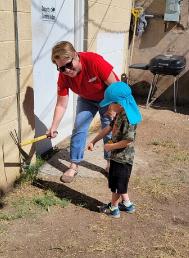
excavator and dump truck.
City Commissioner Sharon McDonald, a strong supporter of Alamogordo Mainstreet and the Side Street Art Project, went above and beyond by personally power washing a significant por�on of the alley. Her ac�ve par�cipa�on underscored the deep-rooted commitment of local officials to ac�vely engage in the revitaliza�on of our local mainstreet.
One of the most crucial aspects that made this transforma�ve project possible was the AARP Community Challenge Grant. Alamogordo MainStreet received $12,600 to begin the project, since star�ng the project Alamogordo MainStreet has been able to secure an addi�onal $3,400 in sponsorships of benches and Story con�nues page 30

Con�nued from page 28 raised bed planters. The grant served as the founda�on upon which the Side Street Art Project was built, allowing for the coordina�on of resources,
manpower, and equipment to create a tangible and las�ng impact.
Alamogordo MainStreet is immensely thankful for the energy and enthusiasm of the volunteers, the dedica�on of our Board Members and City Commissioner Sharon McDonald, and the camaraderie that emerged. Special thanks as well to all who have sponsored benches and planters, including Danielle Rondelez, Casa Toyota Alamogordo, Stone Electric & Power, Mesa Verde Enterprises, Aggtec, Elite Memories Bou�que, Thrive in Southern NM, and Showcase Carpet and Tile. Excitement for this project

con�nues with several other businesses and individuals who have pledged to sponsor.
The Side Street Art Project stands as a shining example of the transforma�ve power of community engagement and collabora�on. Through the combined efforts of Alamogordo MainStreet volunteers, local officials, sponsors, and the unwavering support of organiza�ons like AARP, we will be able to bring shade, greenery, and lots of color to our east alleyway, and transform it into a vibrant, func�onal, and ar�s�c area that will foster a strong sense of community pride and local heritage.
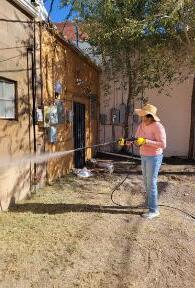
For more informa�on, visit www.alamogordomainstreet. org, or visit their Facebook or instagram.
To learn more about other revitaliza�on efforts in this historic neighborhood such as the Dudley School, sidewalk improvements and installa�ons and more reach out to District 5 Commissioner Sharon McDonald at 575-4469910

came to play in his cave.
In China, dragons are closely associated with rain, and there are many Chinese texts containing prayers
invoking dragons to bring rain.
In Mesoamerica, there lived Quetzalcoatl, whose name translates to "feathered serpent". If you had to describe a dragon, the feathered serpent comes pre�y close.
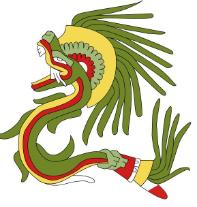
Quetzalcoatl first appeared on a stela at the Olmec site La Venta, which was built around 900 BC. He was worshipped at the city of Teo�huacan during the first century BC, and he was the Aztec god of wind, air, and learning.
The mysterious Na�ve

Story con�nues page 41
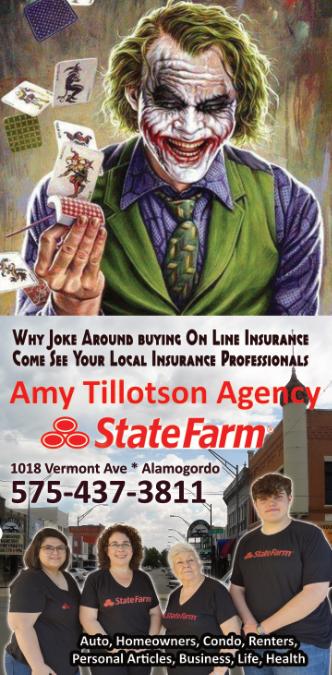

Located inside the lobby of the Classic Desert Aire Hotel, the White Sands Bou�que offers various works by local ar�sts such as Lawrence Vargas and Pablo (Paul Vassey) and others. They offer Pendleton blankets and clothing, beau�ful purses and bags, accessories, sterling silver jewelry, and Southwestern style home décor items.
One of the best parts is that you are welcome to check out the White Sands Bou�que 7 days a week from sunup to midnight! Whether you are shopping for yourself, or you are looking for the perfect gi� for a loved one, the White Sands Bou�que has it all.
The White Sands Bou�que
is proud to offer various Pendleton products such as oversized jacquard beach towels perfect for summer, bags, purses, and wallets with Pendleton’s beau�ful wool work and designs, T-shirts featuring Pendleton’s iconic pa�erns, Pendleton flannels and board shirts, Pendleton mugs for your morning cup of coffee, and more.


Also featured in our lovely Southwestern bou�que is Lawrence Vargas’ original Blackware. Beau�ful handmade designs featuring buffalo, elephants, bu�erflies, vases and more. The White Sands Bou�que also carries Vargas’ Hummingbird Storyteller.
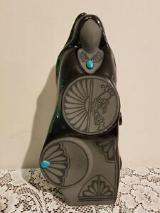

The work of Pablo (Paul Vasey) can also be found inside the Bou�que, as well as all over the outside of the building. Pablo has turned the building, built in the late
Con�nues page 38
Founded in 1977, The Grapevine was established by the growing interest in art on the part of two adult educators, the late Walter Gray, Jr. and Dan Blanchard. They began collec�ng with the purchase of a pain�ng from an amateur show in the lobby of a theatre where they had gone to see The Graduate when it was a first run movie. As they a�ended shows and purchased art works, they fell into the habit of wri�ng to the ar�st to offer to sell work to friends.

Visi�ng a show of the art of Mexico, they were impressed with the work of Alfredo Zalce. Alfredo lived in the city of Morelia, a place they visited annually. They went to his studio and established a good rela�onship with a charming gentleman

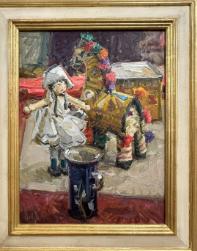
who was recognized as one of Mexico’s finest realists. They asked if they could show some of his work to their friends. He said yes and they sold several. When he shipped more work from Mexico, they learned that a broker would be necessary for the technicali�es of customs.
Alfredo Zalce was a Mexican painter and is considered by art historians to be one of the leading figures of modern, Mexican art. Zalce’s mother and father were professional photographers, and as a young boy, he helped his parents develop film. He studied art at the Escuela Central de Artes Plas�cas, which later became known as The Escuela Nacional de Bellas Artes. At the age of 20, he first exhibited his work in Spain at the Mexican pavilion at the Exposicion de Artes e Industrias. Zalce won second place at this exposi�on in pain�ng.
Story continues page 54

A�en�on local residents and visitors! We are thrilled to announce an exclusive opportunity to experience breakfast in Alamogordo.
Welcome to the Classic Desert Aire Hotel! Discover the perfect start to your day at our breakfast cafe and indulge in unique finds at our southwest bou�que.
Did you know that not only are we a hotel full of Southwest charm but we offer cooked to order breakfast? Stop by the Classic Cafe located through our lobby doors, pass through our gi� shop and find yourself at our Classic Cafe, surrounded bu local ar�st pain�ngs and murals. It’s sure to make you feel the Southwest enchantment while you dine.
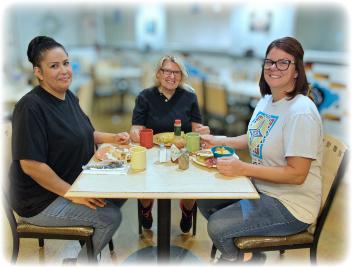
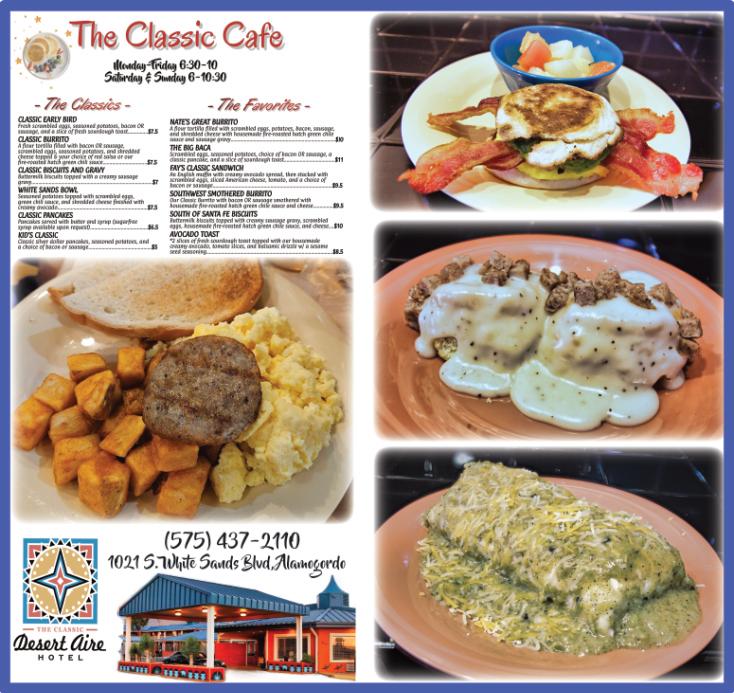
Come in and start your morning enjoying a smothered burrito loaded with eggs, cheese, potatoes and meat, smothered in our very own house-made Hatch green Chile sauce, or go for the fresh baked biscuits and gravy with sausage.
Don’t eat meat? Our White Sands Bowl is sure to please the taste buds filled with fresh baked potato cube, scrambled eggs, our Hatch green chili sauce, melted Monterrey Jack cheese and
topped with creamy avocado.
There’s no hotel con�nental breakfast here, just ask our guests.
to receive 10% off our regular priced breakfast items.
We also have a $5 menu just for our locals! It features a different delicious breakfast Sunday through Thursday. Don’t have �me to sit and enjoy? Stop by, or give us a call ahead to take your breakfast to go.
Why not treat your family or office to an amazing sausage burrito or fluffy pancakes to start the morning right!
We can also accommodate larger groups or morning business mee�ngs in our conference room with a li�le planning ahead. Big or small, we are here to accommodate all.
We are open 7 days a week. Monday through Friday 6:30 a.m. To 10:00 am, and Saturday and Sunday from 6:00am to 10:30 pm. Everyone is invited and you don’t have to be a guest at the hotel to enjoy our cafe.
1950’s, into a living piece of artwork with his beau�ful murals. You can pick up a mini canvas featuring designs from the building to give the gi� of Southwestern art to a loved one or pick up a larger canvas pain�ng for the perfect Na�ve accent for your own wall.
You can find original artwork by Darryl Willison, an official “New Mexico True” cer�fied ar�st. Inspired by the state of New Mexico, Darryl creates his original, one-of-a-kind designs to feature Zia symbols, sugar skulls, UFO’s and more.
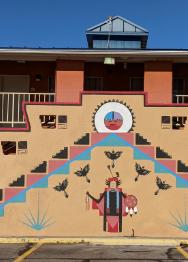
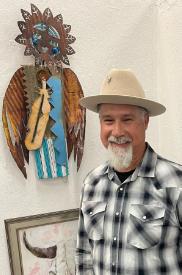
These designs are a great gi� for anyone and are available on his hand pulled tees, s�ckers, magnets and

coasters.
Among these lovely local ar�sts, you will also find stainless steel jewelry with beau�ful designs, Southwest style beaded earrings, bracelets and necklaces.

Make sure to check out the jewelry gi� baskets that include 3 pieces of jewelry in a beau�ful woven basket with various pa�erns.
Find the perfect decor for your home, whether it be a Talavera Sugar Skull for your mantel, clay pots on a rope for your pa�o, hand-made sun catchers or beaded hummingbirds to hang in your window,
Story continues next page
ceramic �les with Southwestern designs, tea towels, place mats or more.
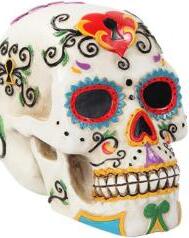
If you are looking for a gi� something beau�ful to add to your home, need something new to wear or a stylish bag to throw over your shoulder, look no further than the White Sands Bou�que located at 1021 S. White Sands Blvd. In the lobby of the Classic Desert Aire Hotel. We’re open from 6 AM to Midnight daily. The White Sands Bou�que is the place to find that special Southwestern touch you are looking for.
Men�on this ar�cle to receive a 10% discount on select items throughout the Bou�que, and don’t forget to stop in and enjoy a nice breakfast at The Classic Cafe while you are shopping.
American Dragon, also known as the Giant Bird Piasa, is depicted in one of two murals on the side of a limestone cliff overlooking the Mississippi River. This pain�ng was done long before the arrival of European explorers in the
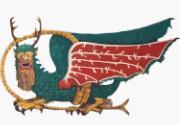
area. This sublime work of art probably dates back to 1200 BC.
This creature was a gigan�c bird, living in the cliffs.Legend has it that Ouatoga, a local Indian chief, was able to kill this Na�ve American monster with a strategy that was communicated to him in a dream by the Great Spirit.
According to this mythology, Ouatoga ordered his most reckless warriors to hide near the entrance of the monster's famous cave. Ouatoga served as a lure to get the Amerindian dragon outside.
The monster flew towards the Indian chief to
Story continues next page


a�ack him, when suddenly his faithful warriors killed him with a flurry of poisoned arrows.
Arthur c. Clarke describes dragons' possible presence on earth before the dawn of human history as "echoes to roll down all the ages, to haunt the childhood of every race of man."
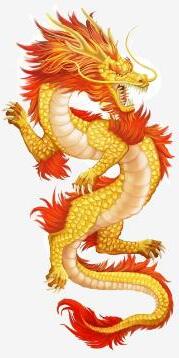
And he asks, "...could you overcome the power of all the myths and legends of the world?"
Chris Edwards AlamogordoTownNews.com. 9-02-2023
Conver�ng the Dudley School: one of the oldest structures in Alamogordo, New Mexico; into a community center is a task a community of volunteers is taking on under the leadership of the Tularosa Basin Historic Society and the city of Alamogordo.
This project has been championed by the Tularosa Basin Historic Society among the nonprofit sector, and by District 5 Alamogordo City Commissioner, Sharon McDonald represen�ng the government partnership.
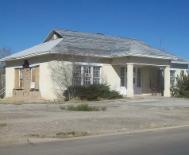


McDonald was a student at Dudley, decades ago, during the transi�onal years from segrega�on. The Dudley School rehabilita�on has a special meaning to her and as a shining light of community pride in the once proud
Story continues page 47
Chihuahuita neighborhood. Her vision is that the Dudley rehabilita�on “will inspire community pride and future investment into reestablishing the dignity and pride of this historically important neighborhood.”

The Dudley School rehabilita�on is the first major historic preserva�on event in the historically Hispanic and African American “old town” por�on of Alamogordo on the Chihuahuita side of 10th Street.

Chihuahuita was once prosperous and the earliest se�lement, in the city proper, of Alamogordo. It failed to garner the investment of all other Alamogordo neighborhoods since its founding. Some early leaders considered it the barrio of Alamogordo, New Mexico, some poli�cal and business leaders s�ll do. Due decades of neglect many houses and businesses con�nue to age and deteriorate without much effort to revitalize. However through leadership change is in the air
Story continues next page

thus the Dudley School rehabilita�on effort, is not only of historic importance, but also culturally important to the history, evolu�on and the story of Alamogordo, and the preserva�on of that historic storyline.
Pride and sense of hope is in the air and changing the plight of the neighborhood, with a renewed interest in Chihuahuita and renewed community pride. Sidewalks are finally being put into the neighborhood, 125 years since incorpora�on, into Alamogordo under Sharon McDonald’s leadership.

The Dudley School, originally known as the Kansas School was a 4-room facility that segregated non-English speaking students from the general popula�on and also hosted African American children un�l integra�on began in Alamogordo in the late 40s through 1951.

Thinking back, a few years ago, before I sold my li�le camper and se�led for a few nights in “The Spruce Cabins” in Cloudcro�, I recall the hard �mes, my “old” camping out, wilderness days, living off the land…..the miseries of camping out…..“ROUGHING IT"
I could have went in debt for another six years and bought a big truck to pull a bigger camper, but, even though everyone now leans toward "the bigger, the be�er,” I s�ll like my li�le truck. So, hampered by the lack of a few horses, (horsepower), I have a small camper, a “Casita.”
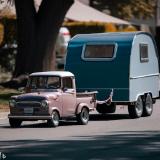
Unfortunately, my wife’s not into “camping out,” surviving in the wilderness, living off the land. Lucky for her. Breakfast the first morning in the wilderness, namely, the small village in Cloudcro�, NM, near my camping spot, was rough, she might not have made it thru the ordeal. Social distancing, ea�ng out in the wilderness, or rather under the canopy, partaking of the outside dining at “Dusty Boots Cafe,” enjoying
Story continues next page
the eggs, hash browns, and sausage, while figh�ng off bears, mountain lions, irate waitresses, flies, and hungry dogs. It was rough, but, like I told my wife,
“Hey, that’s just part of camping out.”
The problem with owning a camper is, for prepara�on to travel, it requires a lot of kneeling and crawling, something we "seventy something" year olds try to avoid. Once we get down, we may need a winch, or possibly a "wench" to help us get back up....


..Ha........Don't tell my wife I said that, she some�mes tends to go overboard with revenge.
“Oh yeah, well mister big man, here's your cell phone, call the fire department." She’s pe�y like that.
Hooking up and refamiliarizing myself with all the ameni�es seemed easy enough, I re-read all the pamphlets, took a couple of hours to go through, then equipped with all the knowledge I needed to run the air condi�oner, heaters, fridge, etc....

“Dang it, bleep, how do I turn this water heater on?” Yep, you got it, I called in the "big guns" to help me puzzle it out, my son, grandson, son-in-law, and wife, well actually I didn't call my wife, she just showed up, uninvited, started supervising, and ordering people around.

I guess you could probably safely say I'm now prepared to disappear into the wilderness for
a few days, with the comforts of home, unfortu-nately, I can't squeeze my recliner in, thought about takin it apart, disassembling it, to get it in my camper, but my stub-born wife quickly vetoed that idea. I’m now workin on plans for an outside recliner hauled to the wilderness in the back of a pickup truck. “Innova�ons.”
Just a quick trip to Wallyworld for a so� ma�ress pad, a small TV, and a DVD player, along with a few good CD's, ”Tombstone,” “Dances with Wolves,” “Lonesome Dove,” and I'll be ready to go... .or should I say, “Rough it.”

Go�a remember to load up my coffee and "hazelnut creamer"..........., there's nothing like roughing it in the wilderness......smelling the cool, cool pines, while munching on a spam sandwich or a can of sardines.....
I men�on my wife several �mes in this post, and I must say, when we were young, we camped together, in an old tent, sleeping on a cold cot, or the hard ground, ligh�ng an old Coleman lantern to take the winter chill out.
She was a good sport, had the makings of a real mountain woman. But, alas, �me has changed her, can’t say I blame her, the motels rooms are nicer, the “Spruce cabins” more accommoda�ng.
The miseries of camping out, “roughin it” now just a happy, faded memory
If you are enjoying the stories in Alamodoso Magazine wri�en by Junior Thurman of Artesia, New Mexico, he wants to let you know that he has a number of books on his collec�ons of stories for sale on Amazon..
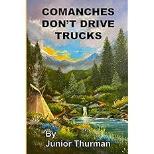


Continued from page 37

Zalce typically painted scenes of Mes�za women, na�ve plant life, rural markets and Mexican landscapes. Many of his Expressionist pain�ngs have themes based on Mexican heritage and his revolu�onary ideas. He created pain�ngs as well as etchings rich with detail, texture and color. Zalce credited Diego Rivera as being one of his biggest influences and experimented with a number of mediums and canvases from watercolors and oils to linoleum engraving, metal and ba�k.

As a part of their educa�onal ac�vi�es, they had been ac�ve in producing television shows on art. Early on these shows included the work of emerging ar�sts such as Wilson Hurley of Albuquerque, NM, in the early seven�es and the young Dan

In 1930, the Mexican government commissioned Zalce to found a pain�ng school in Taxco, Guerrero. The following year, he a�ended the lithography workshop of Emilio Amero and shared his classroom with other famous Mexican ar�sts, including Orozco. Many of Zalce’s most famous lithographs were created during this era.
In 1945, Zalce completed one of his most important and bestknown works, a por�olio of stampas de Yucatan. He became the director of the Escuela Popular de Bellas Artes de Morelia in 1950 and con�nued to live and work for the rest of his life there. A major retrospec�ve of his art was held in 1981 at the Museu de Arte Moderno de Chapultepec in Story continues page 60
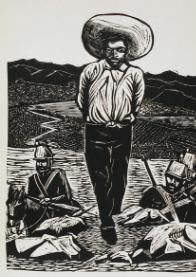
Birds Of A Feather is a non-profit organiza�on that seeks to help rehabilitate and re-home birds that have been abandoned, neglected or surrounded due to difficult circumstances. With love and dedica�on, we help our feathery friends to return to a healthy natural state so that we can place them with forever homes and families.
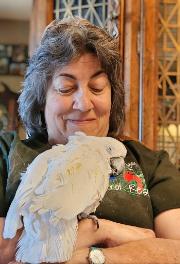
We don’t take: Owls, Hawks, Hummingbirds, Pigeons/Doves, Sparrows, House Finches, or Wildlife. For wildlife call Wildlife Rescue 506-344-2500
Whether you are looking to surrender your bird or welcome one into your home, we will guide you through the en�re process
(505) 980-6166 · 2033 Virginia St NE.



Mexico City, which celebrated 50 years of his work and featured over 200 works, including pain�ngs, sculpture, drawings, graphics and tex�les. Zalce con�nued to paint well into his 90s and died in 2003.
The specialty of The Grapevine Gallery has been to present promising ar�sts of all ages and work with them for decades. In nearly all cases, their promise has developed into high quality.
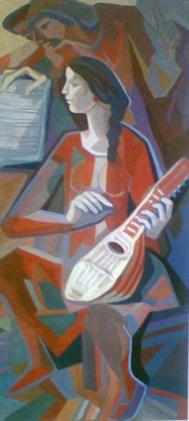
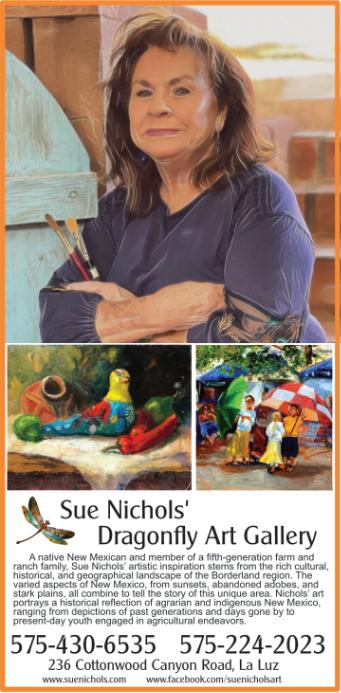
The name Grapevine was used because they were thinking of carrying wine accouterments and books along with art.
That never came to pass, but the name turned out to be perfect for a gallery that regularly became acquainted with both ar�sts and collectors from recommenda�ons from collectors and ar�sts.
A�er working and learning from their now late mentors, Walt and Dan, beginning in 1995, the Grapevine is now in the hands of Walt’s grandnephew Clay Speer and his wife, Julie.
Clay and Julie have now moved the gallery to an online format with shows and workshops to be enjoyed in person. Currently, Clay and Julie live in New Mexico and future Grapevine events will be in the land of enchantment although the gallery is a true online gallery that helps with appraisals, estate planning and of course art sales for interested collectors.
To get on their list of emailing informa�on and photographs of the art works, email them at clay. grapevine@gmail.com.
"We are proud of the ar�sts and collectors with whom we work. They are the reason for this gallery’s existence."
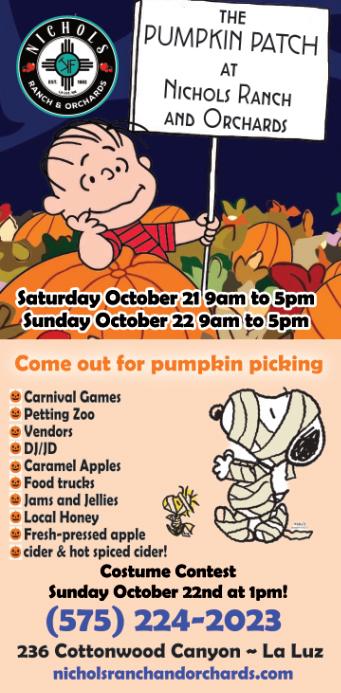
• ½ cup granulated sugar
• 2 teaspoons ground cinnamon
Instruc�ons
• Preheat the oven to 350°F. Lightly spray a standard 12-cup muffin �n with nons�ck cooking spray. Set it aside.
• Working on a lightly floured surface, roll out each tube of dough into a 12×16-inch rectangle. If using perforated crescent roll dough, be sure to pinch the seams to seal them.
• Spread ½ cup of apple bu�er evenly over the top of each sheet of dough.
• Star�ng on the long end of the dough sheet, �ghtly roll it up into a log.
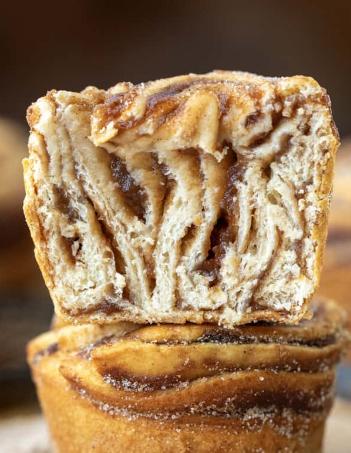
A cruffin is a pastry that’s a mix of two tasty treats: a croissant and a muffin.
Imagine if a croissant, which is a flaky and bu�ery bread, and a muffin, which is like a so� and round cake, decided to become best friends. They’d create a cruffin! But, this recipe uses crescent roll
dough in place of croissant dough to make this an easy recipe that anyone can make (no homemade dough required).
Ingredients
• Cut the log in half, crea�ng two shorter logs.
• Cut each of those shorter logs in half lengthwise, giving you four sec�ons of dough.
Cruffins
• 3 tubes (8 ounces each)
crescent roll sheets
• 1 ½ cups apple bu�er, divided
Topping
• Repeat these steps with the remaining two sheets of dough, resul�ng in 12 sec�ons of dough.
• Working with one sec�on of dough at a �me, with

the layered side facing up, roll it �ghtly into a cinnamon roll shape, tucking in the end piece of dough.
• Place each roll into the prepared muffin �n.
• Bake for 22-24 minutes or un�l the cruffins are golden brown.
• In a small bowl, whisk together the sugar and cinnamon.
• Remove rolls from the oven and immediately roll each cruffin in the cinnamon sugar mixture. Enjoy!
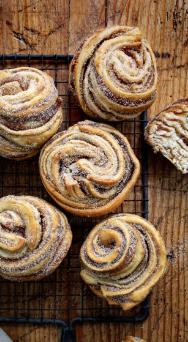
Recipe courtesy of Nichols Ranch. See their ad page 60
Ingredients
• 1 (14.1-ounce) package rolled refrigerated unbaked pie crusts (2 crusts)
• 1 cup purchased apple pie filling
• 1/4 cup caramel sauce
• 1 tablespoon sugar
• 1/4 teaspoon apple pie or ground cinnamon

• 1 tablespoon half and half Direc�ons
Preheat oven to 425 degrees F
. Let pie crusts stand according
Story continues page 69
their ad on page 114 for




The latest novel featuring Jack Ryan, Tom Clancy’s iconic hero and now president of the United States, delivers all the elements that fans expect from the franchise.
In Mark Greaney’s “Tom Clancy True Faith and Allegiance,” someone with inside knowledge andaccess to personal details of key military and government personnel has been selling that informa�on to enemies of the United States.
In a crowded New Jersey restaurant, U.S. Navy Commander Sco� Hagen is on leave with his family when a man shows up and tries to kill him. The gunman is a Russian whose brother was onboard a submarine that Hagen destroyed when he was serving on the USS James Greer.
Meanwhile, in Tehran’s airport, a Canadian businessman who has previously made a dozen visits is
flagged as a CIA spy.
These are only two examples of a growing problem with a data breach of such extreme magnitude. How does this informant have such top-secret details? Is everyone who works for the government or military now a target?
While President Ryan contemplates what to do, his son Jack Ryan Jr. is undergoing training to join an elite specialops group known as The Campus. The organiza�on is recrui�ng a few others as well, and their exper�se will be needed when a terrorist begins striking at individuals inside the United States.
Has this enemy been given classified materials to strike at the heart of America?
President Ryan will need to put his personal feelings aside to save the na�on from a ruthless adversary.
Tom Clancy died in 2013. His novels were blockbusters that focused primarily on technology while the people involved were secondary.
Ac�on-thriller author Greaney, who has con�nued the series, handles the tech side with grace and has fleshed out the cast and given them depth.
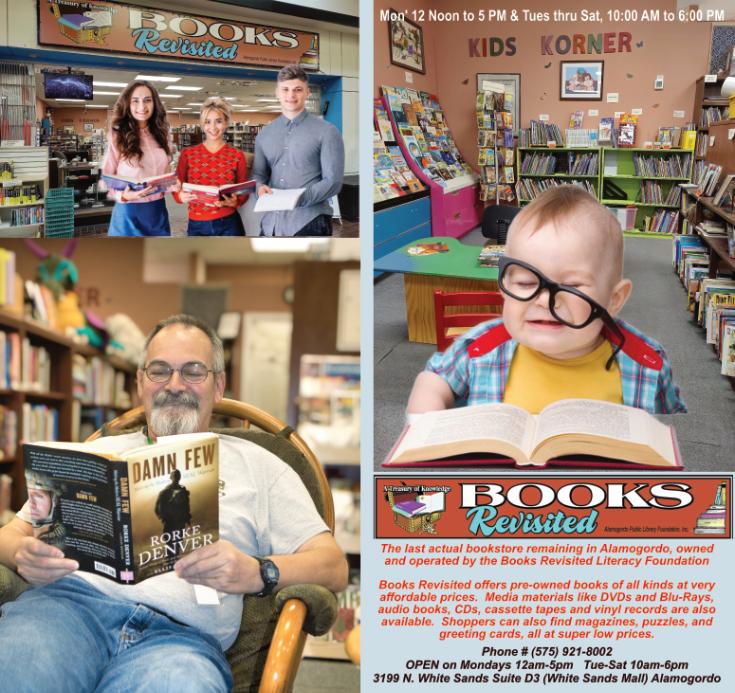
Clancy fans will enjoy “True Faith and Allegiance.”
--- A copy of this book is available in Books Revisited
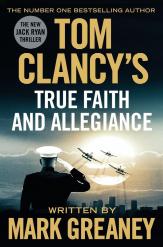
Con�nued from page 65

to package direc�ons. Line 2 baking sheets with parchment paper; set aside.
1. Transfer apple pie filling into a food processor. Lightly pulse apple pie filling in a food processor un�l in 1/4-inch chunks
2. Roll one pie crust into a 14inch circle on a lightly floured piece of parchment paper.
3. Using a pizza cu�er or a sharp knife, cut 1/4-inch wide strips.

4. Cover cut pie dough with parchment paper or plas�c wrap and set aside.
5. Roll remaining pie crust dough into a 13-inch circle on lightly floured piece of parchment paper.
6. Spread caramel sauce over rolled pastry.
7. Spoon apple pie filling over caramel sauce, spreading so
Story continues next page

it is evenly distributed.
8. Create a la�ce top with dough strips by alternately placing strips on top of the filling.

9. Using a 2 1/2-inch diameter cookie cu�er, cut rounds from pastry.
10. Transfer cookies to the prepared baking sheets.
11. S�r together sugar and apple pie spice in a small bowl.
12. Brush cookies with half and half and sprinkle cookies with sugar and spice mixture.
13. Bake in the preheated oven un�l cookies are golden brown, about 12 minutes (working in batches).
14. Cool on baking sheets on wire racks for 20 minutes. Remove cookies to a serving tray and serve warm.
Ingredients

• 1 cup apple cider
• 1 750-ml bo�le dry white wine
• ¼ cup fresh squeezed orange juice ¼ cup brandy. Sparkling
• water to top
• One apple, cut into ½-inch cubes
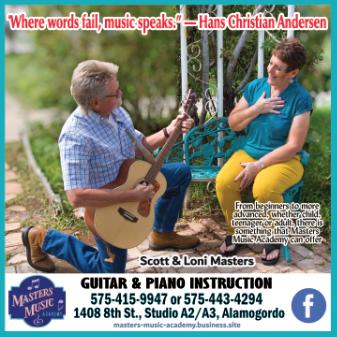
• ¼ cup pomegranate seeds
Direc�ons

Put fruit in a pitcher that can hold at least six quarts. Add apple cider, wine, juice and brandy and refrigerate un�l well chilled.
When ready to serve, give it a good s�r and then pour in sparkling water. Alterna�vely, you can pour the chilled mixture into glasses and top each with sparkling water.

When Lincoln County Sheriff Pat Garre� ended Billy the Kid's life on the night of July 14, 1881 with a shot in the dark, he was catapulted at once into stardom in the annals of Western history.
The killing occurred at old Fort Sumner, New Mexico on the Pecos River. Garre� by pure chance had encountered the Kid in a darkened room of the Pete Maxwell house.

As the unsuspec�ng Billy entered, he was cut down without warning. But the Kid had his share of friends and many of them stepped forward to level some harsh cri�cism against the lawman. It soon became clear that while Pat Garre� was an instant celebrity, he had also
come away, at least in some quarters, with a nega�ve image.

To address that problem, he began thinking about a book to give the public his side of the story. The editor of the "Santa Fe New Mexican, " Charles Greene, offered to publish a Garre� volume if the sheriff could find someone to ghost write it for him.

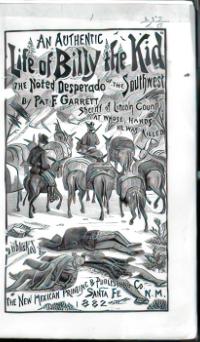
Pat enlisted his good friend Marshall Ashmun (Ash) Upson, a journalist, to do the job. Upson cranked out a manuscript and it was published in 1882 under the �tle "The Authen�c Life of Billy the Kid."
On May 17, 1882, Garre� begins trying to sell his book. For just 50 cents he would send you a copy of his book.
According to Robert Utley, it didn’t sell very well during Garre�’s life, and despite a lot of people using it for informa�on on the Kid’s life, it has been determined to have many factual errors.
Inducted into the Western Writers of America Hall of Fame.
Si� the flour, baking powder, baking soda, and salt into the bowl of a food processor.
Add 1/2 cup of the cold diced bu�er and pulse just un�l the bu�er is the size of peas. Pour in the bu�ermilk and pulse just un�l the dough starts to come together.
Step 3
Dust a work surface with flour and turn the dough onto it. Press the dough together, pat it out into a disk about 1/2 inch thick, and then give it about 5 folds.
Ingredients
• 2 c. all-purpose flour, plus flour for dus�ng
• 2 tbsp. baking powder
• 1/4 tsp. baking soda
• 1 tsp. kosher salt
• 1/2 c. very cold unsalted bu�er, diced, plus 1 tablespoon, melted

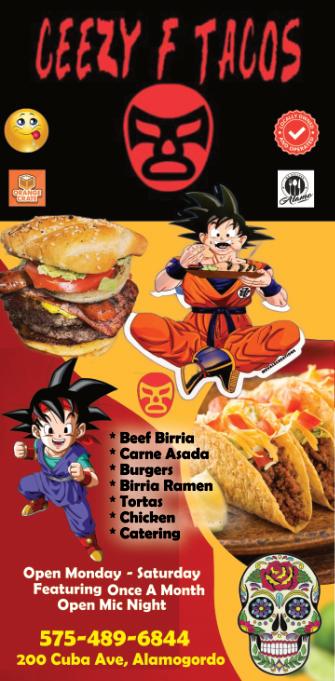
• 1 c. bu�ermilk
Step 1
Preheat the oven to 450°F.
Step 2
Press it out again into a 1/2inch-thick disk. Using a 3-inch round biscuit cu�er or an empty �n can, cut out as many biscuits as you can.
Press the scraps together gently and cut out as many more biscuits as you can. Arrange the biscuits on a baking sheet, spaced slightly apart.
Step 4
Bake un�l golden brown, 10–13 minutes; do not overbake. Brush the biscuits with the melted bu�er and enjoy!
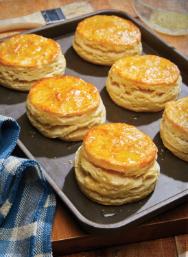
Writers have compared opals to volcanoes, galaxies, and fireworks. Admirers gave extraordinary opals poe�c names like Pandora, Light of the World, and Empress. In ancient Rome, this gem symbolized love and hope. The Romans gave it a name— opalus—that was synonymous with “precious stone.”
In 75 AD, the Roman scholar Pliny observed, “Some opali carry such a play within them that they equal the deepest and richest colors of painters. Others…simulate the flaming
fire of burning sulphur and even the bright blaze of burning oil.” He marveled that this kaleidoscopic gem encompassed the red of ruby, the green of emerald, the yellow of topaz, the blue of sapphire, and the purple of amethyst.
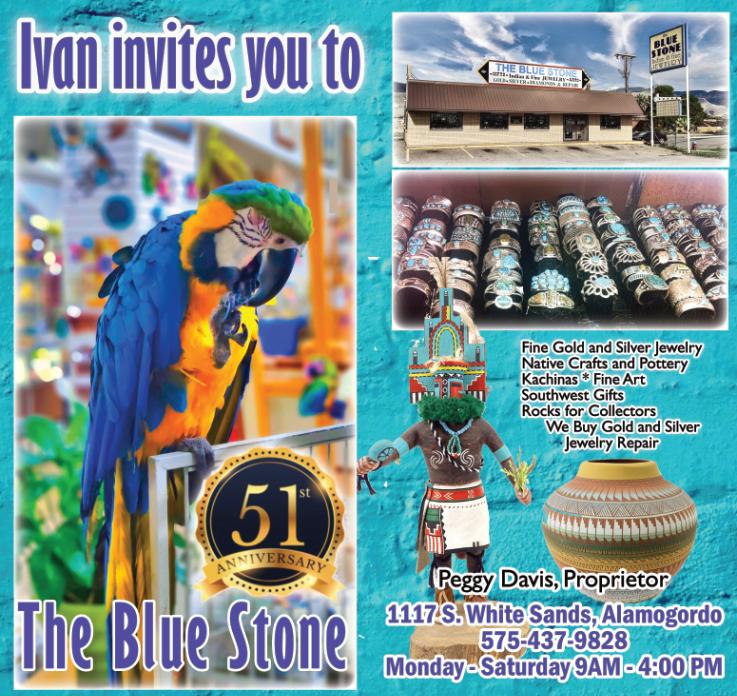
Many cultures have credited opal with supernatural origins and powers. Arabic legends say it falls from the heavens in flashes of lightning.
The ancient Greeks believed opals gave their owners the gi� of prophecy and guarded them from disease. Europeans have long considered the gem a symbol of hope, purity, and truth.
Opal is considered an October birthstone. Some people think it’s unlucky for anyone born in another month to wear an opal. But that par�cular supers��on comes from a novel wri�en in the 1800s (Anne of Geierstein by Sir Walter Sco�), and not from any ancient belief or experience.
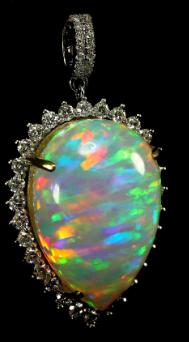
In fact, throughout most of history, opal has been regarded as the luckiest and most magical of all gems because it can show all colors.
Once, it was thought to have the power to preserve the life and color of blond hair.
The birthstone for November is topaz, an aluminum silicate mineral containing the chemical element fluorine. Depending on trace elements within the stone, the color can vary from clear to yellow-orange, goldenbrown, pink, and more, though yellow and blue are most common for birthstones
This stone can be found all over the world, from Brazil to the U.S. to Madagascar, China, and more.
Topaz is an ancient gemstone that vibrates with a very par�cular 'noble' energy," adding that it's commonly associated with high moral principles and ideals.
It’s also known to slice through a man’s depression, anger, or disarray, and give clarity of thought to whoever wears the stone
Topaz symbolizes love and desire. It gives any individual who wears it expanded intellect and increased strength.
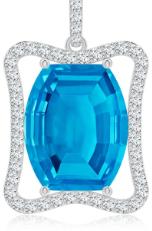
It is known for its associated characteris�cs of strength, constancy, devo�on, and versa�lity. It’s also known to adjust feelings and considera�ons for a more agreeable and harmonious way of life.

The gemstone enhances a deep sense of being, increases knowledge, and slices through inconveniences and disarray to present clear ideas and reasoning to whoever wears the stone.


Na�ve to the Americas, from the southwestern United States to well into South America, marigolds are popular because of their ease of growing, low-maintenance, and colorful blooms from early summer through the first frost.

Marigolds, a member of the aster family, and more specifically the Tagetes genus, have three main types: French, African (or American), and Signet, which appear in orange, yellow, red, and bicolors, as well as other color combina�ons. (Pot marigolds, na�ve to southern Europe and a member of the Calendula genus, are not a true marigold.)
While the names suggest otherwise, African marigolds do not originate in Africa and
got their name when the flowers were brought through northwest Africa along a trade route. French marigolds were named due to their popularity in French gardens.
The common name, marigold, is a shortening of ”Mary’s gold.” It is said to have been named for the Virgin Mary.
Because of their strong smell, gardeners once thought marigolds were poisonous.
In India, giving a marigold lei was a sign of friendship.
Many cultures believed that the bright orange and yellow colors, represen�ng the rays of the Sun, could help guide departed loved ones to the a�erlife. Some believed the colors represented the beauty and warmth of the Sun and offered the power to resurrect.
In more recent �mes, the flowers have been linked to op�mism and prosperity, cheer and joy, love and strong emo�ons, wealth and success. The flower has also been connected with death and grief. Learn more about the language of flowers.

In Buddhism, marigolds are used to worship Buddha, while in Hinduism, the flowers are associated with the Sun and used in marriage celebra�ons.
It was once thought that marigolds could provide protec�on while crossing a river
and from being hit by lightning.
The ancient Greeks and Romans used marigolds for medicinal purposes, to dye fabrics, and create cosme�cs.
In medieval �mes, marigolds were thought to be a treatment for the plague.
Used to treat rashes, burns, and wounds, marigolds have an�sep�c and an�-inflammatory proper�es
The marigold is a prominent element in Day of the Dead rituals, which originated in Mexico more than 2,000 years ago.

The flowers decorate gravesites and home altars, known as ofrendas. Thought to a�ract the souls of the dead, the bright colors and smells of marigolds are used to create a path from a home’s front door to the ofrenda inside..
• Why didn't the mom let the little witch go trick or treating with her friends? She was ex-spelled from school.

• What is white, black and dead all over? A zombie trick or treating in a tuxedo.

• When do zombies finish trick or treating? When they are dead tired.
• Why shouldn't an angry witch take her broom trick or treating? She might fly off the handle.

• Which type of pants do ghosts wear to trick or treat? Boo jeans.
• What makes trick or treating with twin witches so challenging? You never know which witch is which!
• What happens when a vampire tries to trick or treat in the snow? Frost bite!
• What do you call two witches trick or treating together? Broommates
• What does a turkey dress up as on Halloween? A goblin.
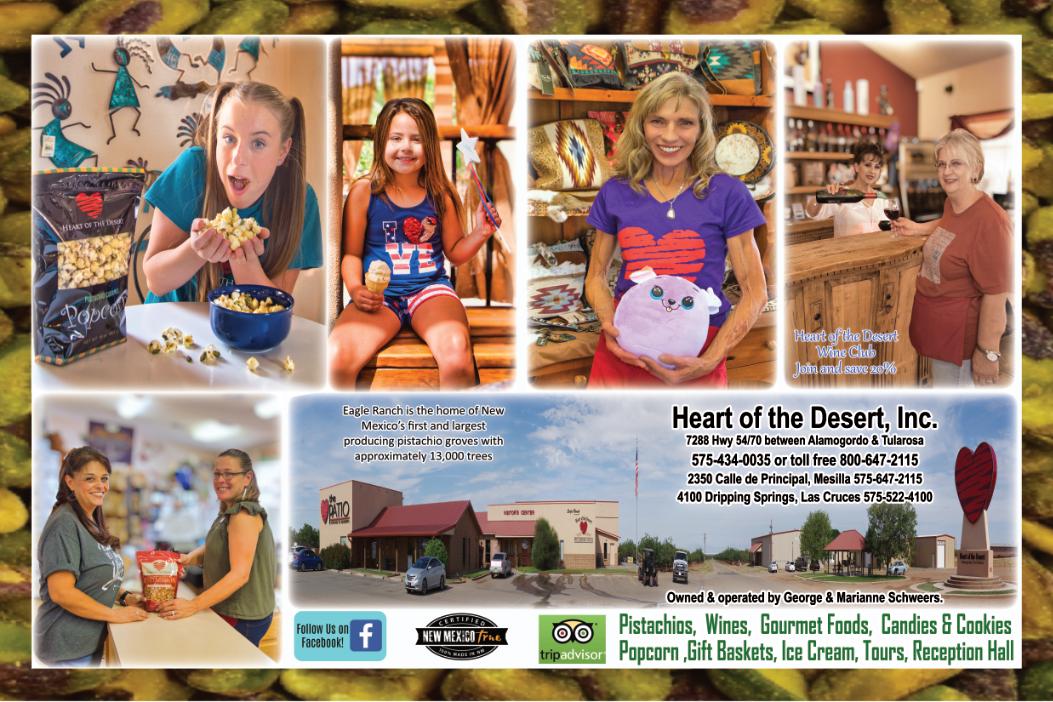



The chrysanthemum—or mum for short—is the flower most associated with the fall season, providing the last pop of color in the garden. They make a great decora�on for autumn displays and have a long history of symbolism that dates back centuries.
Na�ve to Asia, the word chrysanthemum comes from the Greek prefixes chrysos, meaning “gold,” and anthemon, meaning “flower.” Swedish botanist Carl Linnaeus is said to have named the plant.
The original color of the chrysanthemum was golden, but through cul�va�on, the flower now comes in a range of colors— yellow, orange, white, purple, pink, and red.
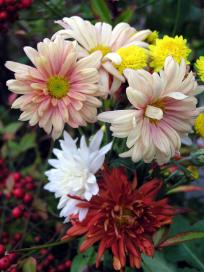

A member of the daisy family (Asteraceae), the chrysanthemum is one of the most widely cul�vated flowers.
Chrysanthemums symbolize loyalty, friendship, and joy, but each color conveys a specific meaning. For example, red represents true love, white signifies innocence and honesty, and yellow symbolizes a wounded heart or neglected love.
I The Chinese and Japanese view the chrysanthemum as a sign of youth. It was believed to allow people to live longer and keep their bodies healthier. According to folklore, one chrysanthemum petal at the bo�om of a glass of wine would promote longevity.
According to Chinese tradi�on, the flower prevents gray hair.
The chrysanthemum dates back to 15th century B.C. China, where it was grown as a flowering herb used in salads and teas. In Chinese art, the chrysanthemum is one of the four plants that make up the Four Gentlemen, represen�ng the four seasons, along with the plum blossom, the orchid, and the bamboo. It was long used in China as a remedy for headaches, reducing blood pressure, and as an an�inflammatory. It has also been offered to the elderly as a symbol of long life and good luck.
Libra's horoscope for October 2023: A new cycle begins on your birthday. You are determined to defend your interests, to win your case, but take the necessary distance to evaluate the situa�on calmly. Any abuse of power will not work for you. But, if you operate a�er careful considera�on, you are more likely to succeed.
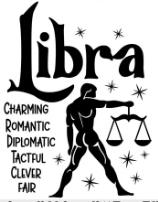

You express your ardor and sensuality in the secret of the alcove (the 22nd). Naughty naps are more sa�sfying than big public statements.
In couple: you will be more fulfilled emo�onally by cul�va�ng your love on the quiet than by cooing in the public square in October where your impulses will not be expressed any be�er than in the secret of the alcove.
Single: there is no ques�on of revealing a budding romance, you cul�vate a taste for secrecy. Whether you are having an illegi�mate affair or you do not
want to expose your love publicly, you could, in the shadows, live a strong story (the 22nd).
If Jupiter increases your income, this is no reason to go overboard (28th, 29th).
Whether you've recently signed a contract or not, you're seeing an increase in revenue. Unless there is a business development that suggests a bright future. Whatever business you have going on, the context remains promising (22nd), but don't ask for too much (28th, 29th).

-The 9th: Beware of conflicts in the family if you decide that you are right about everything or if you impose your rules on everyone. Your loved ones do not like your methods which make everyone tense.
-On the 13th: to defend your interests in a produc�ve way, show that you manage your daily tasks conscien�ously and leave nothing to chance to make a good impression on everyone.

-On the 22nd: you will enjoy your love life the most by learning from your past experiences or (and) by living your love life in the privacy of the alcove. Not by sharing your stories or by proclaiming your happiness loud and clear.
-The 28th: do not force the hand of those in power who do not like your demands. They will refuse you what you demand.
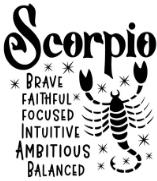
A new cycle of evolu�on begins. If you aspire to impose your will on the world, you are less expansive on the sen�mental level, reflec�on is necessary. You need to step back to find out where you stand and what you want to do from now on.
Radiant, charisma�c, you will dazzle whoever you want, but do not overdo it. Un�l the 6th, Jupiter favors unions and promising mee�ngs. Then take the �me to probe your heart, your emo�ons to be sure that your choices correspond to your desires and needs.
In couple: a period favorable to the tender closings. This is an opportunity to strengthen your complicity with your partner and to seduce him or her. Venus invites you to live the link out of sight and to ques�on the depth of your feelings.

Single: this is the �me to take a

“I Dream of Jeanie Glass Art”
Jeanie and her husband Rocky recently moved back to our area a�er 21 years of living in the Albuquerque area and Mesa, Arizona, and then Greenville, Texas. They decided they love the Southwest and, since she has sisters and other family members here, have se�led into a home with some land and plan to stay.
She started crea�ng glass art a�er receiving a class cer�ficate for the Kachina Stained Glass Studio in Mesa from Rocky as a Christmas gi� in 2013.
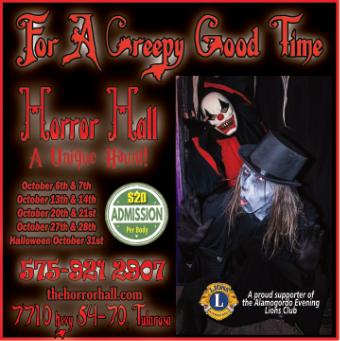
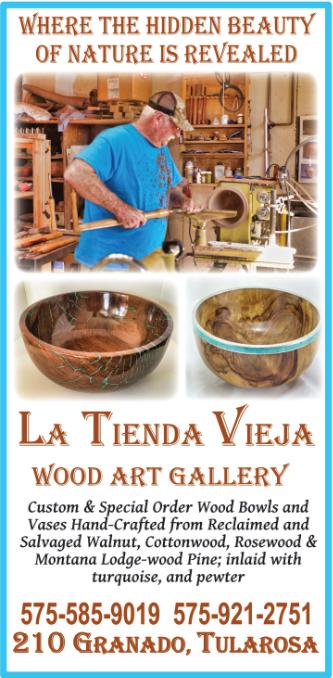

She con-�nued classes there for several years and regre�ed leaving the studio when they moved to Texas.

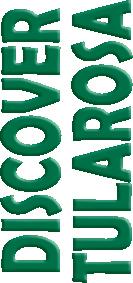
Clients who have requested Story con�nues page 130
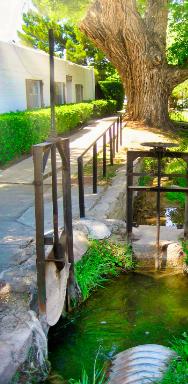

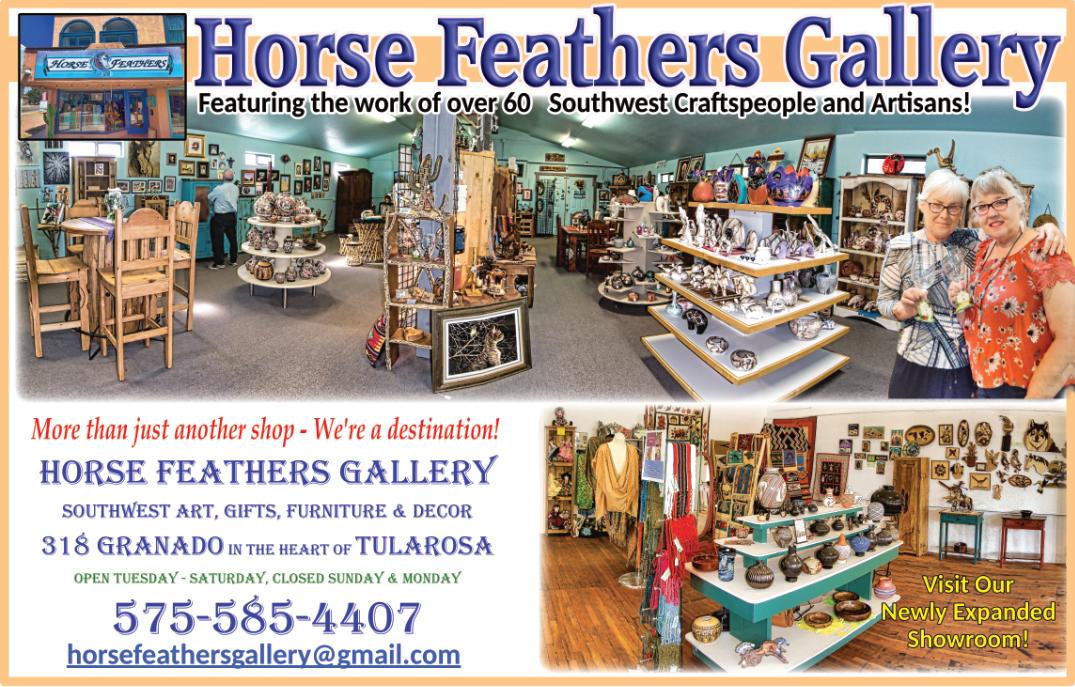
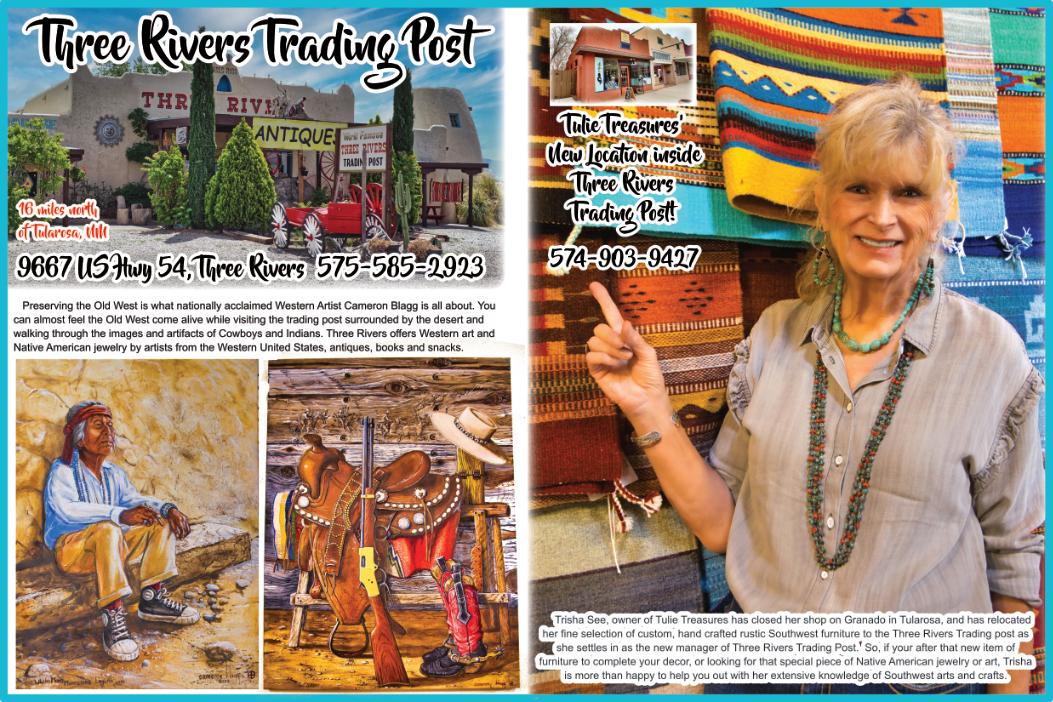

While the onset of the cold season will vary depending on your region, it’s a good rule of thumb to begin the process of winterizing your home in early fall. If you decide to DIY it, this will give you plenty of �me to do it at your own pace.
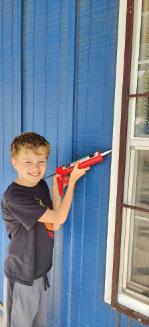

However, if you are hiring a pro, you will need to schedule service appointments as soon as possible—perhaps even request them during the summer—so that you can get any necessary work completed before the weather turns for the worse.

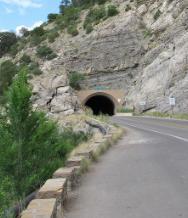
Winterizing your home means preparing it both inside and out for the cold weather. The following tasks don’t
Story continues page 114
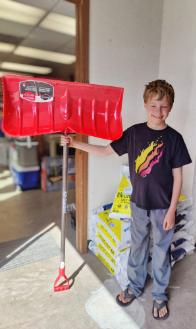
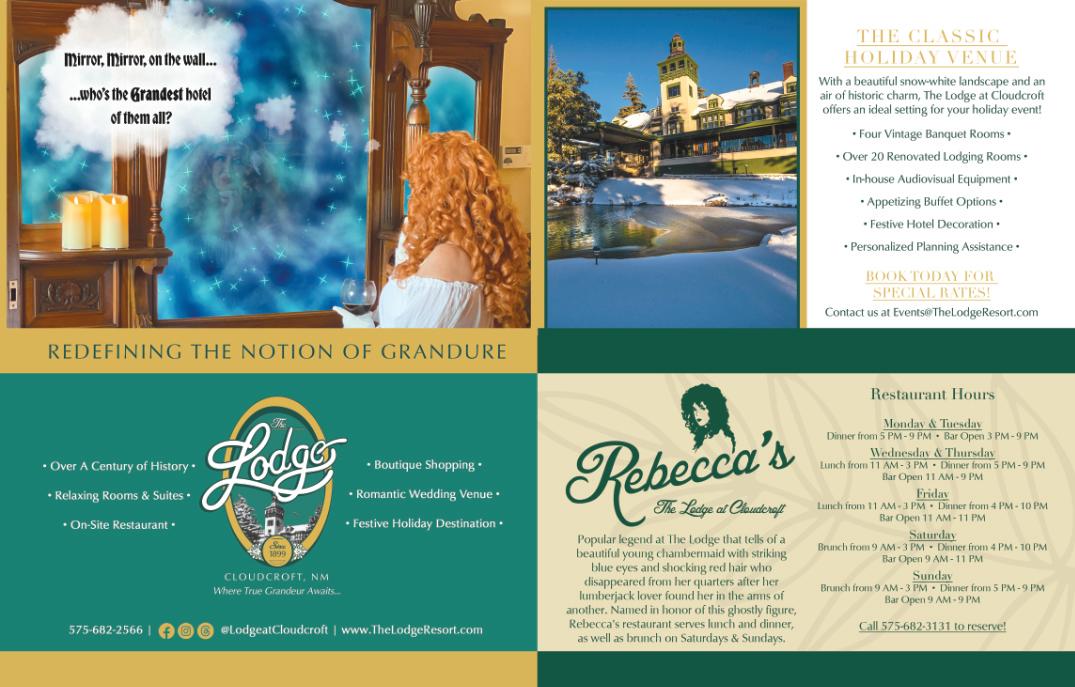
Honored to be the 3rd owners of this beau�ful bou�que style family RV Park and Campground quietly nestled 6600+ feet above stress in Mayhill New Mexico are owners Clay and Julie Speer from Norman, Oklahoma. What brought them to New Mexico? They were looking for an RV Park/ campground on the Gulf of Mexico course ….. and fate led them to the mountains.
In November of 2020 deals along The Gulf fell through and “The Camp at Cloudcro�” was presented to Clay by his Broker. Interest was peaked when Clay was told that the temperature doesn’t get out of the 80’s in the summer…. A�er surviving numerous 100 degree+ summer days, this sounded like heaven. A�er a Thanksgiving quick visit, The Speer family fell in love with the area and the rest is history.
Since acquiring the park, it was made clear that Cloudcro� isn’t referring to the area like the term “New England” as it was explained to the soon to be new owners and a�er feedback from members of the Cloudcro� and Mayhill community members, Clay put a name the park vote in the local paper and Camp Rio won the name the park vote.
Camp Rio is proud to be a favorite for family summer getaways, fall retreats, hunters base camps during various seasons, Story continues next page
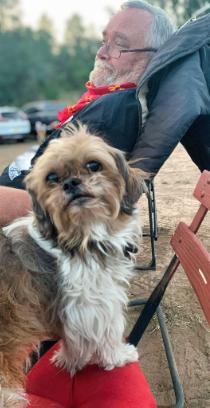
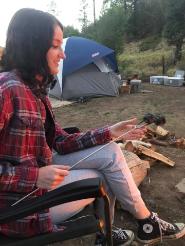
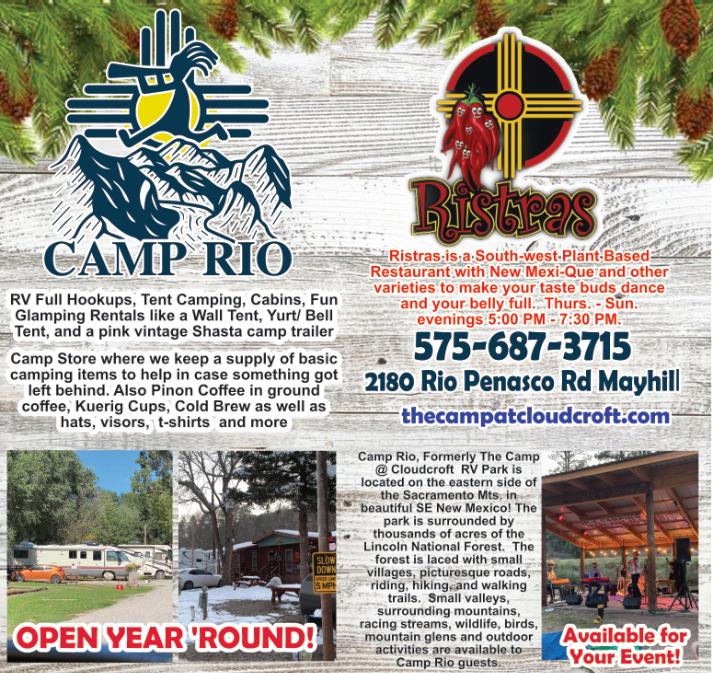
potlucks like chili cookouts and Friendsgiving Feasts and more. Not to be out done by food, bean bag tournaments and Rubber Ducky races in the park have quickly become a favorite of guests as well as concerts and occasional “jam sessions” for fun.
Camp Rio strives to provide a memorable relaxing guest experience for guests staying with us as well as locals who want to a�end our events and visit our Food Trailer Ristras.

Our 1st Annual Swap MeetWe will basically be having a big camping swap meet/ “Not” garage sale, we will all have "tables/booths" at our campsites and family game area. Camp Rio has a ton of camping equipment, gear
supplies and music equipment we will have for sale, come join us and barter, trade or sell…..
How does it work???? WellCamp Rio will be set up by the White Shed, all guests and others are welcome to book their site and set up a table to wheel and deal.
Do I have to be a guest at Camp Rio to a�end? No, "vendors" aka sellers need to have a site, people wan�ng to shop may just come on down!
(RIP Bob Barker, we will all miss you on our sick days.... that was the highlight of being home on a school day for me in the 80's!) Then I watched Ferris Bueller and was more into my wheels or my parents in the 90's..... lol
Our 3rd Annual Friendsgiving 11AM - 1PM in the Pavillion- this has become a tradi�on to kick off the holiday season. The format is a pot luck, we tell people to only cook a dish for about 6 - 8 people and we all just graze and have fun.
Camp Rio will provide 2 turkeys, 1 fried and 1 othercome fine out. Come show off your skills with us at Camp Rio. The theme is a "non tradi�onal" Thanksgiving Potluck, but if you are wan�ng to try something trendy to see how it turns out before your big family event..... we will be your test group!

Con�nued from page 107 necessarily have to be completed in order, but they should all be completed by the �me the cold weather arrives.
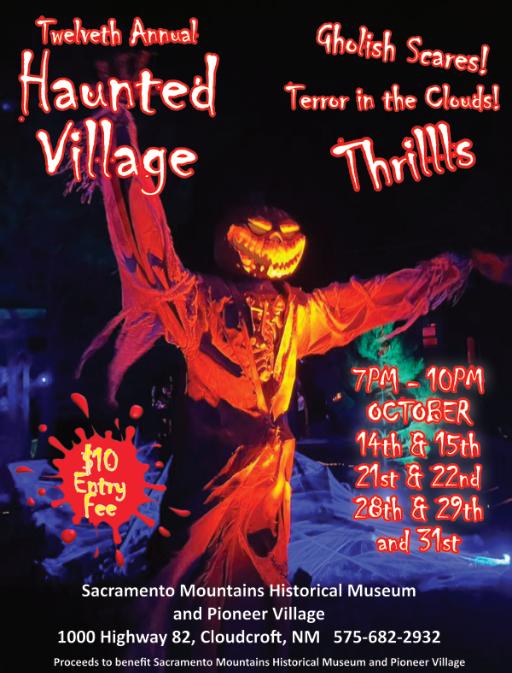
Tools
• Ladder
• Telescoping gu�er wand
• Door sweep
• Faucet covers
• Furnace filter Materials
• Snowblower, shovels, and other snow removal tools, including de-icing agents
• Caulk gun
• Window film
• Door sweeps
Winterizing your home means preparing it both inside and out for the cold weather. The following tasks don’t necessarily have to be completed in order, but they should all be completed by the �me the cold weather arrives:
Clean the Gu�ers
Gu�ers are the workhorses of your home’s exterior. They direct rainwater and snow away from your roof to prevent water from seeping in and causing damage. But gu�ers can’t do this very important job when
Story continues page 132

Henry McCarty, known in Wild West lore as Billy the Kid, lived a brief and violent life, stealing and killing before his death in a gunfight aged 21. He lived with a gun in his hand – and some�mes, it seems, a croquet mallet.
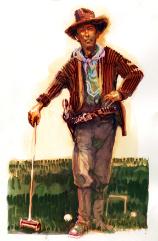
In a surprising historical twist, the second photo of McCarty ever to be authen�cated shows him and his posse, the Regulators, playing the sport in New Mexico in 1878.
The faded image was among a pile of photos inside a cardboard box at a junk shop in Fresno, California, unearthed by a collector in 2010. Randy Guijarro paid $2 for the image, which is now es�mated to be worth millions of dollars. The only other confirmed photo of Billy the Kid, from 1880, sold for $2.3 million in 2011.
The photo was authen�cated by a San Francisco-based Americana company, Kagin’s, which iden�fied Billy the Kid along with several members of the Regulators, as well as friends and family. It was taken a�er a wedding in the summer of 1878, just a month a�er the gang took part in the brutal Lincoln County war.

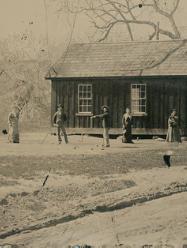
Researchers spent a year inves�ga�ng the photo, and even found the loca�on where it was taken, in Chaves County, New Mexico. There they unearthed the remains of the building shown. “We found the old lumber underneath,” said Jeff Aiello, of Na�onal Geographic “We found those exact rock piers are s�ll there.”
Croquet became popular in the 1860s because it was the first sport that women could play on the same terms as men, and men and women could play each other.
A solar eclipse occurs when the Moon passes between Earth and the Sun, thereby obscuring the view of the Sun from a small part of the Earth, totally or par�ally.
Such an alignment occurs approximately every six months, during the eclipse season in its new moon phase, when the Moon's orbital plane is closest to the plane of the Earth's orbit.
In a total eclipse, the disk of the Sun is fully obscured by the Moon. In par�al and annular eclipses, only part of the Sun is obscured. Unlike a lunar eclipse, which may be viewed from anywhere on the night side of Earth, a solar eclipse can only be viewed from a rela�vely small area of the world.
Although total solar eclipses occur somewhere on Earth every 18 months on average, they recur at any given place only once every 360 to 410 years.

An eclipse is a natural phenomenon. In some ancient and modern cultures, solar eclipses were a�ributed to supernatural causes or regarded as bad omens. Astronomers' predic�ons of eclipses began in China as early as the 4th century BC; eclipses
119 hundreds of years into the future may now be predicted with high accuracy.
During an annular solar eclipse, the apparent size of the Moon’s disk is slightly smaller than the apparent size of the Sun’s disk. Therefore, only the outer edge of the Sun remains visible and the Sun appears as a brilliant ring called a “ring of fire”.
Join us to celebrate this solar event.
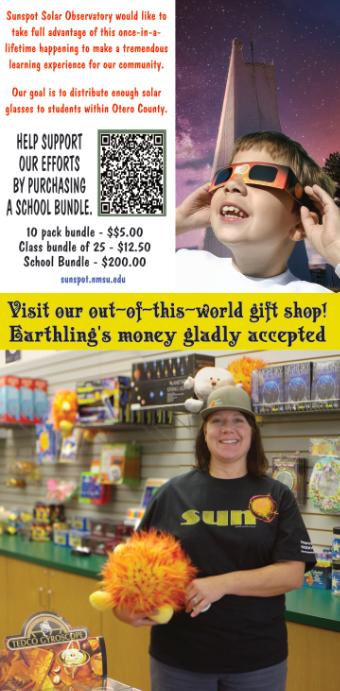
The Dunn Solar Telescope will be open to the public, livestream featuring views of the eclipse from Sunspot, Four Corners, & Lowell Observatory,

Take a peek of the eclipse under the eclipse canopy.
Triple Nickell Food Truck will be serving breakfast & lunch.
Bring an outdoor chair and get comfortable.
Eclipse Path Schedule:
Begins: 9:14am, Maximum: 10:39am, Ends: 12:14pm


“Telescopes play with rainbows,” says volunteer Bill Wren to a dimly lit room packed with visitors of Sunspot Solar Observatory. The crowd is comprised of both young and old tourists who’ve flocked to the Observatory to tour one of the world’s greatest solar telescopes, the Richard B. Dunn Solar Telescope (DST) operated by New Mexico State University. Their eyes remain fixed on the slide show Wren has put together to illuminate the informa�on he shares about the telescope, the Sun, and our long plight to fully understand its marvels.

Wren flips through screens depic�ng explosive coronal mass ejec�ons, hot gas brimming on the Sun’s
atmosphere, light spectrums, and the immensity of the Sun compared to the planets which orbit it, including ours. “It’s incredible, folks,” Wren says, explaining the connec�on between ancient solar science and modern technological innova�ons, like the DST.
Wren, who is recently re�red from McDonald Telescope in Texas, worked a long career as a public informa�on specialist—and eventually as special assistant to the superintendent—for over thirty years.
He was responsible for leading educa�onal outreach programs at the observatory, but his career offered him many other exci�ng
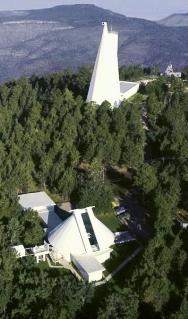
Story con�nues next page

opportuni�es, including working alongside astronomers, studying distant celes�al objects, building telescopes, and promo�ng the value of dark skies to oil and gas companies. Even now, in his re�rement, Wren finds himself drawn to suppor�ng public educa�on efforts, which is why he reached out to Sunspot Solar Observatory a�er moving to Cloudcro�, NM in 2021.
“I just wondered if they could use somebody to do programs, because that’s what I really enjoy doing,” says Wren. “I was an academic tutor for astronomy, and I just enjoy teaching people about astronomy, because I find it so fascina�ng. Happily, [the people at Sunspot] said sure! They basically gave me the freedom to do it how I wanted to do it, so I do what I learned when I was at McDonald. I prime [the visitors] to see the telescope, help to facilitate the tour, and then I do the spectroscopy demonstra�on.”
During Wren’s presenta�on, visitors learn about the physics of the Sun, a brief history of astronomy, and the unique history and features of the Dunn Solar Telescope—which Wren educated himself on before beginning his program. Ini�ally, the presenta�on was around half an hour but as Wren con�nues to expand his own knowledge on DST, he fills the presenta�on with more
exci�ng content, simula�ons of solar events, and photos captured by the DST to share with visitors.


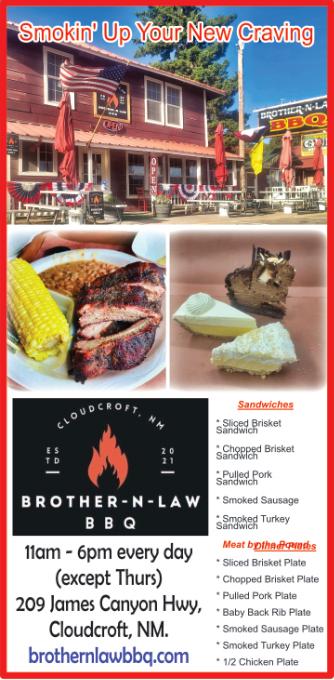
“The Dunn Solar Telescope is just really amazing,” says Wren. “It’s such a neat telescope. I feel very fortunate to be able to show people around there. And trying to explain how spectroscopy works there is great.”
Originally called the Vacuum Tower Telescope (VTT), the Dunn Solar Telescope is regarded as one of the best solar facili�es in the world. Using its vacuum tube light path, the telescope essen�ally “smears sunlight out into its cons�tuent colors and onto the op�cal bench,” says Wren, “which allows astronomers to use a variety of instruments to study sunlight.”
It was renamed in the 1990s to honor astronomer Richard B. Dunn, who helped determine some of the defining features of the telescope, including its rota�ng floor, which helps the telescope rotate as the sun rotates. As Wren says, “If [the telescope] didn’t rotate, the image would slowly turn and blur. By rota�ng the telescope, you derotate the image of the Sun.” During the tour, visitors can witness the floor moving if they give it a push with their feet; however, it doesn’t move rapidly like a carnival ride.
Rather, it rotates so subtly that a scien�st spending the day observing wouldn’t necessarily feel like they were moving.
“If you look at the history of astronomy, that’s when it really became astrophysics— when you could use spectroscopy to actually decipher the chemistry and the physics going on at the source of your observa�on,” he explains. In his presenta�on, Wren recounts how the spectrum of rainbows revealed to scien�sts Gustav Kirchhoff and Robert Bunsen (of the Bunsen burner) helped scien�sts narrow down what elements were present in the sun’s atmosphere and how those revela�ons led to a groundbreaking conclusion: the Sun is a star.
Some astronomers never fathomed that we could understand as much about the proper�es of stars or the Sun as we do now, including one philosopher referenced in


Wren’s presenta�on. A quote from August Comte, highlights the commonly held belief that by the mid-1800s, the limits of astronomy had been reached. Now we know just how far from the truth this is.
Wren likes to share this kind of knowledge with others to express how amazing it is that we have come so far with the technology needed to study the Sun, stars, and distant celes�al objects. “What Comte said was a common belief,” Wren says.
“They wanted to know what was going on, what was happening in the stars, what they were made out of. They just lacked the means to decipher and discern it, so they believed they’d reached the limit of what they could
Story con�nues next page
ad on page 114 for details



That is, un�l spectroscopy came along and revolu�onized things.”
Spectroscopy—the study of light according to color—is an area of astronomy that Wren has been exploring and demonstra�ng to the public for years. In his program at Sunspot Solar Observatory, he likes to incorporate this intriguing and beau�ful piece of science as a way to give visitors a hands-on experience.
“One of the programs I developed while working at McDonald was a pectroscopy demonstra�on using handheld diffrac�on gra�ngs that show the emission lines for different chemical elements,” Wren says. “Being able to show people that you can iden�fy different chemical elements from a distance because they emit and absorb light at par�cular colors is quite rewarding. When people wonder ‘how do you know what it’s made out of or how hot it is,’ the answer to all those ques�ons is in the technique of spectroscopy.”

Inside the Dunn Solar Telescope facility, the group of visitors gather in the dark to par�cipate in their own spectroscopy experiment. Using tubes of different chemical elements like mercury, hydrogen, and neon, Wren shows how each element gives off their own unique color pa�erns on the

spectrum. Looking through special lenses called transmission gra�ngs, visitors can see for themselves the varying wavelengths, visualizing how astronomers are able to decipher what chemical compound makes up an object they are viewing from lightyears away. This is one of the reasons Wren finds that combining the history of astronomy with a spectroscopy demonstra�on is so vital to the public’s understanding of astrophysics.
“The history of it lays the factual groundwork,” he says. “The key to it, as is the case with so many things, is to be able to see it with your own eyes. That is what makes all science valid. It can be recognized as fact and as truth, because anybody can perform the same experiment and come up with the same results with the proper equipment. You don’t have to take my word for it. You can see it for yourself.”
custom work from her include the Siberian Husky Club of Metro Dallas; the M. L. Rose Restaurant in Nashville; the AETC (San Antonio TX Air Force); many private clients; and even a movie prop, which is a gorgeous mosaic panel of sunflowers.
Her favorite process is the lead and zinc method of panel crea�ons. She does have experience also with copper foil procedures and incorporates lead and copper foil together, depending on the pa�ern.
Most of the frames for her art are made by Rocky, and the customer can choose the paint or stain. She also does table tops in addi�on to framed pieces.
Of course she accepts custom orders, as so many of our Gallery ar�sts do, and we look forward to seeing more of
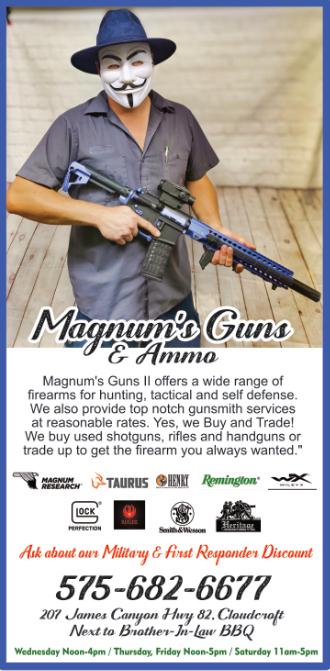
her beau�ful art come into the Gallery and then out to our customers’ homes and offices!
Now the new owner of Horse Feathers Gallery here in Tularosa, along with her twin Janet Bruneau, she invites you not only to look at her stained glass work, but also the works of over 60 talented SouthWestern ar�sts as well.
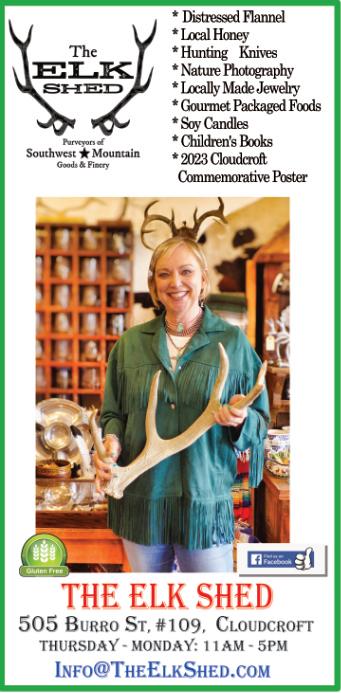
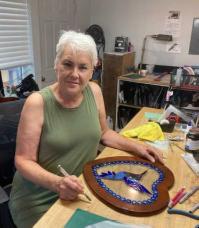
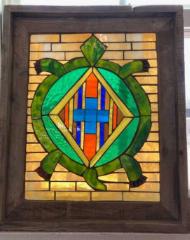
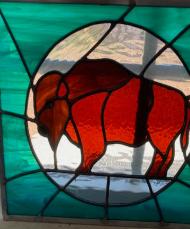
Con�nued from page 114 they’re clogged with dead leaves and other debris. Whether you hire someone to do it for you or climb a ladder yourself, make sure your gu�ers are clear before the first snowfall.
Now’s the �me to make any repairs to your roof so that it won’t leak in the rain or the snow. If you have an a�c, replace or add insula�on to keep dra�s out.
If you have a fireplace, you’ll want to make sure the chimney is clear of any buildup. A dirty chimney can be a fire hazard, so hire a chimney sweep to ensure it’s clear and you can build fires safely all season.

Cold air can creep in through windows and doors, so be sure to replace any weatherstripping around them. Apply caulking to seal any gaps around windows— you can also do this for any cracks in the siding, too.
Unless you have newer, energy-efficient windows, you can apply window film to keep out the cold. A door sweep installed on the bo�om of your door can keep dra�s out, too.
Frozen pipes can burst during the winter and cause major problems for homeowners. Here are some things you can do to avoid this winter�me nightmare:
Know the loca�on of your main water shutoff so that you can access it quickly in an emergency.
Drain the water from outdoor sprinkler systems and garden hoses. Disconnect garden hoses from faucets and store them in a garage or shed. Cover the faucets.
Fix or replace any broken windows so that cold air can’t get into a room and freeze pipes, par�cularly in the basement.
Walk the perimeter of your home and close off any other vents that you might have opened during the warmer weather.
This is par�cularly important if you live in a region where snow is likely. Cover pa�o furniture with weatherproof covers or, if possible, store it away in a garage or shed. If your deck is wooden, a fresh coat of sealant will protect it in wet weather.
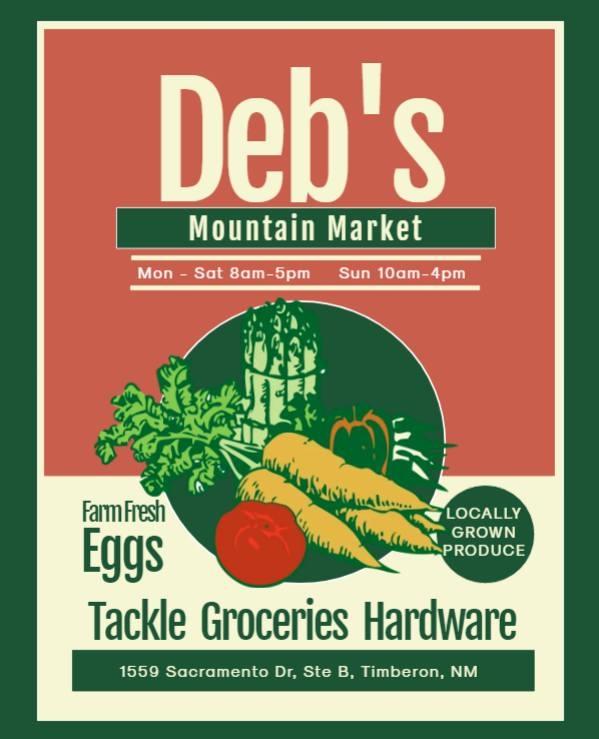


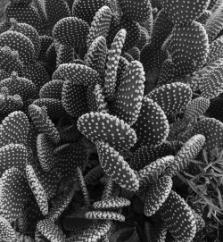


Story continues page 126
to $12 a thousand board feet. By 1892, these prices had increased about 50 percent.
In the early days, kerosene (coal oil) lamps lit the homes and dwellings. Some�mes tallow or wax candles were used for ligh�ng. Water from wells, cisterns or nearby streams was essen�al for the household. There was a water bucket and a dipper that was used by all for drinking.


Mother made us cough syrup and candy from the “horehound” weed that s�ll grows wild in the area. The “tea bushes” or Green Ephedra and “tea weed” or canu�llo that grows on the hillsides were used for making spring tea. A spoonful of wild honey was added to the teas if folks were lucky enough to have some.
Most all clothing was handmade by the women from pa�erns that they had created. In those days, the Sears and Montgomery Wards catalogs were the store. Shoes had to last a long �me, and then they were half-soled (repaired from shank to end of toe) at home by the men in the family.
When financial help was needed for the school, the cemetery, or the church it was raised by pie suppers or box socials. The ladies of the community would bake pies or pack boxes with a complete meal and decorate the box a�rac�vely. The men would then bid for the pie or box of their choice. These events always drew a large crowd.
Story con�nues next page

Travel was limited as horses proved the main mode of transporta�on. Oxen were used for hauling logs and freight.

Wages in the early days were about the same as in the other mining camps. Miners and �mber men were paid $3 a day; muckers (shovelers) and car men, $2.50; common laborers $2; mill amalgamator and ba�ery men $3.50; blacksmiths $3 to $3.50; and master mechanics, foremen and shi� bosses, $3 to $5. Day shi�s were 12 hours seven days a week. Sunday was the hardest day of all, since it was reserved for clean-up and repair jobs. Sunday night was the only regular �me off. Over�me was paid at a standard rate.
The winter days were so short that they began and
ended in darkness — going and coming with lighted lantern in one hand and lunch box in the other.
It was a big day when the men from all over the country rounded up to brand ca�le. In the spring, these men would rope, brand, cut and mark. At the roundups there were chuck wagons, line riders, wives, children with their dogs and saddle ponies. The wives would prepare food, keep the branding irons “red hot” and cook “mountain oysters” as requested.
At night around a campfire, folks would tell stories, play guitar, fiddle, french harps or accordion. There was a chance for the young cowboys and girls to dance out in the wide open spaces nearby.
Some of the ranchers would haul beef and deer meat to El Paso, Texas, by wagon, where the meat would be traded for fencing materials, clothes and food. The only road going to El Paso was through the sand dunes and mesquite. Usually, the family depended more on the mail order catalogs.
Easter was a day for church, basket dinners and easter egg hunts. On the Fourth of July, there was a big celebra�on with picnicking, foot racing and horseshoe pitching, as well as sack races and other forms of recrea�on. Short horse races
Story con�nues page 146
ad on page 114 for details

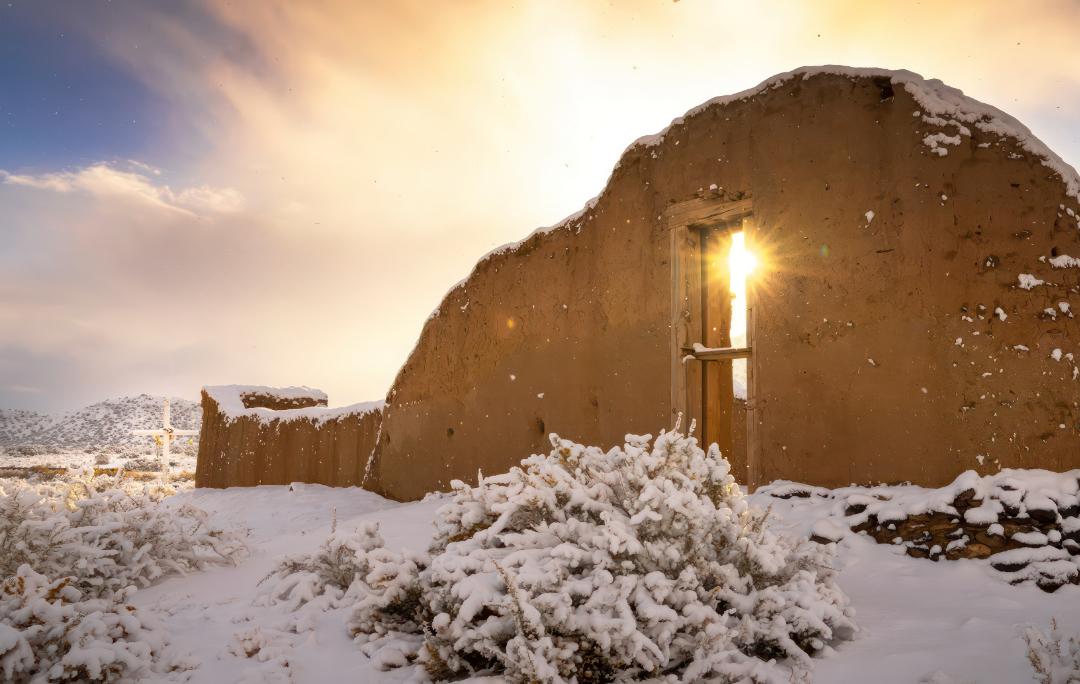
Prac�ce. During her first trip to Carrizozo, New Mexico (2019), she awakened again and realized that only one singular medium could accompany her on her journey moving forward.
By May 2021, that medium revealed itself to be Pain�ng. This shi� required her to take her art form that was most personal and make it public and also asked her to channel her mul�plicity and produc�vity into the medium that requires her to be the most pa�ent, yet, it allows her to be in Medita�on.
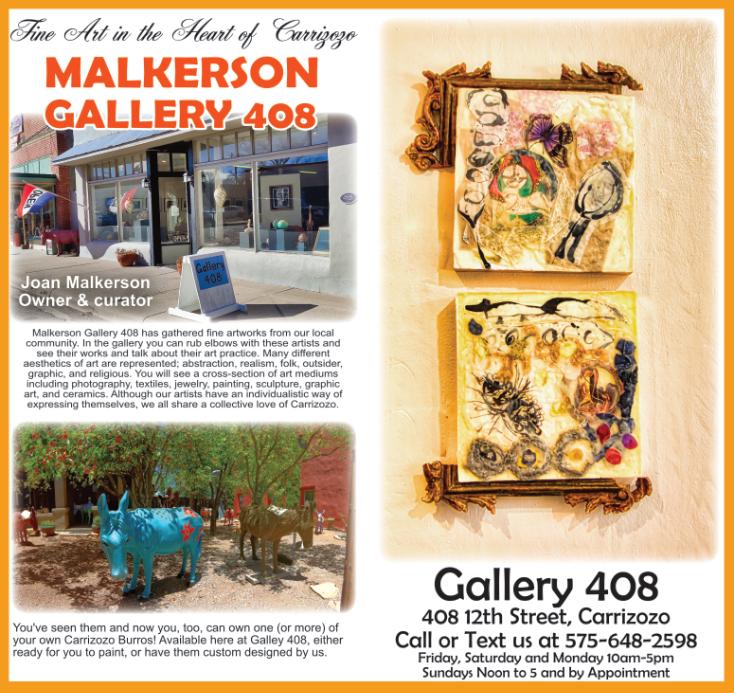
Soleil Corazón-Libre’s pain�ngs ar�culate her direct experience of Being.
Born in Maryland, U.S.A., her journey reads as a map plo�ed from following Inspira�on. God and Presence provide her life’s direc�on. She spent the majority of her life adventuring through Dance, Music, and Mixed Media Conceptual Art, o�en crea�ng projects that relied on these disciplines working together to create one unified work.
She studied at Columbia University (BA 2014) and a�er gradua�on, excitedly entered the school of Life. 10 years of living, learning, and growing led to a deeply fulfilling discipline in Spirituality, Integra�ve Medicine, Sovereignty, and an

Soleil was first a Carrizozo AIR in 2022, and returned this year for a 6 month Residency, which ends Oct. 31st. She has had a very transforma�ve experience! Community connec�ons, Medita�on, Spending �me in Nature, Drawing with Ken Davy, hos�ng MoMaZoZo, Free Pain�ng, Studio Visits, and being a docent in Gallery 408 is a short list of all of her adventures here. She loves New Mexico and it will live in her heart forever!
Water, Wri�ng, Graffi�, Acrylic Paint, Gouache, Spray Paint, and Printmaking using found materials are recurring tools in her prac�ce. CorazónLibre begins her MFA Pain�ng residency at the LeRoy E. Ho�erger School at MICA in September 2024.
were also very popular with the young and the old.
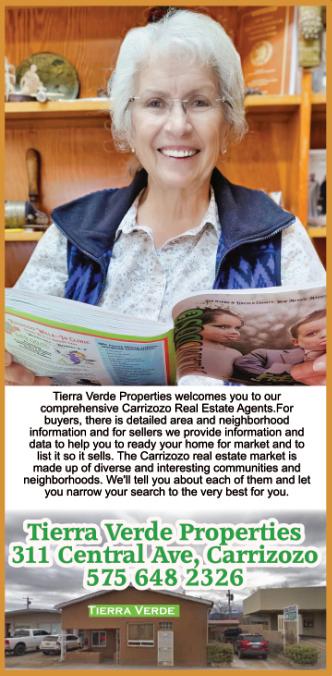
Horseback riding was always enjoyed. Camp outs in the cool pines along the creek banks, fishing for trout in the deep pools and wading the shallow waters were deligh�ul summer experiences. The good old days had their compensa�ons, as raw nature was there to enjoy a campfire cookout, singing and star gazing. This was �me to smell the flowers, to watch the birds, bu�erflies and squirrels. One learned to commune with nature at an early age.
In the fall, ca�le buyers would come to the ranches to bid on the cows and calves. Cows brought about $10 each and calves would bring about $8. When the bidding was over, shipping the stock was next. On a certain day, the ca�le
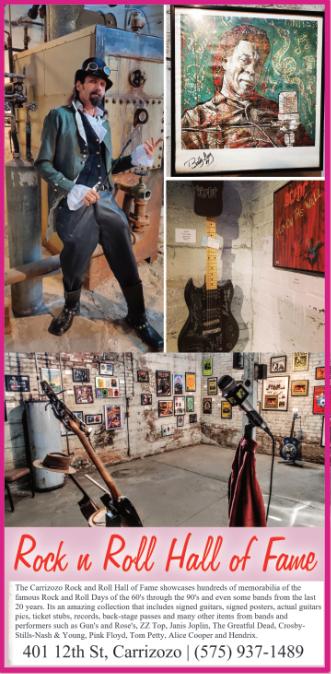
would be driven to Capitan or Carrizozo to be shipped out by rail, some�mes as far as Kansas City (the railroad came about the turn of the century). Prior to the coming of the railroad, Fort Stanton bought a greater por�on of the beef from local ranchers.
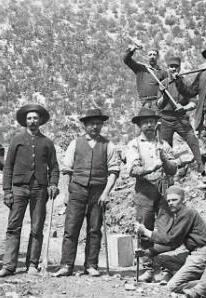
Washing clothes on a washboard for the family was no small task. The old black iron pot in the yard was used for hea�ng water for the wash. It also served for scalding pigs, cooking hominy, making homemade soap or for scalding turkeys or chickens.
In the fall, the cellars were stocked with home canned goods from the summer gardens. There were also fruits from the orchards, and canned meats. There would be potatoes and carrots packed in sawdust, home cured hams, sausages, salt pork or “sow belly.” The sausages were made with pork, beef and beef suet. Eggs were stored in large crocks filled with brine or were coated with wax for longer storage in crocks filled with water.
The children who lived out of town walked to school, or rode if they had horses. The horses were brought in from the pasture and fed and saddled by the older children. Dressing warmly was a must in winter. To help keep the feet warm, “gunny sacks” were wrapped around them. Some�mes children would ride double. Just ge�ng to school was a major event!
According to Historical Record, I was born to my previous life on or around December 14, 1854. I have always felt a deeper connec�on with and a strong love for winter and snow. I remember being born at Canyon de Chelly/Canyon del Muerto, Arizona Territory.
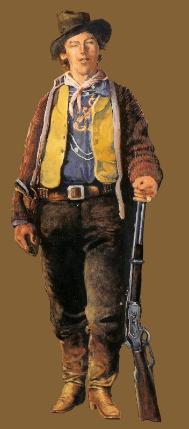
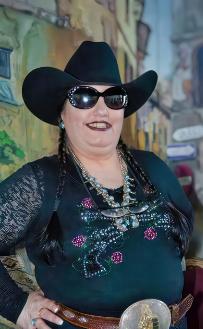
Story continues next page


My Father was the leader of our band of people, Barbon-cito. My Mother (Deluvina Maxwell), was his fourth wife. When the Spanish and Kit Carson (now a distant Cousin Rela�on by marriage) and the Ute people came and destroyed our village, killed many and forced the rest of us to “The Long Walk.”
The Long Walk of the Navajo, also called the Long Walk to Bosque Redondo , was the 1864 deporta�on and a�empted ethnic cleansing of the Navajo people by the United States federal government. Navajos were forced to walk from their land in what is now Arizona to eastern New Mexico.
I was “Li�le Dove,” I was around age 10 at the �me this all happened and my name was eventually changed to Abrana. I no longer remember why. What I saw at that �me, is burned, seared into my soul for eternity. I never want to see it again, but have been forced to it by those who wished to wipe me out in this life�me because they wanted to see this story silenced, squashed and put to death. Tears, death, hunger, sadness, starva�on, pain and des�tu�on of heart, mind, body, soul and Spirit.
Many would be taken to what was to later be my home, Fort Sumner, NM. That place is as barren and worthless as it was then, even today. My Mother (later Deluvina Maxwell –Jaramillo) and I were taken to
Santa Fe, NM, where we were stripped of our language, our hair was cut to short, many were threatened and even killed on a daily basis because of their defiance to the Spanish Nuns.
No one touched me, except to wrap my palms with rulers. I expect it was because I was so quiet. There was once a Nun there who absolutely hated me. She taught one of the classes there. I must have somehow pained her, as for why I cannot recall anymore. When Mami Deluvina and I ended school there, the Maxwell family came and took myself, my Mother, and three or four more for their stable of servants.
This was around 1869. The school finally burned in 1881, {along with a string of other individuals and proper�es had odd destruc�on occur, such as deaths and places being burned to the ground or otherwise shaken to their founda�ons by unexplained occurrences through the 1880’s, as there was a northward trail from Albuquerque to Taos that from best recollec�on, stopped in 1900. Thank Goodness to be rid of such an evil place. The echoes of that place reverberate to this day.
Things, but s�ll discrimina�on was a problem. I wasn’t good for much more than a Servant or a Whore. I had to seek work at the local Saloons.
Story con�nues next page
ad on page 114 for details

When I walked into Saloon La Fonda, it was there that I met Henry McCarty (Billy). He had seen me months earlier at a sheep camp in Ruidoso, NM.

We were instantly smi�en with each other. I le� the next day for home, to prepare for my marriage to Billy. Billy was an excellent provider. Even though I worked for the Maxwell family as a Servant, Billy gambled for a living and did quite well. He would bring home Jewelry, money, anything of value. I squirreled it all away, except for a couple of favored Jewelry pieces.
Soon, we had enough to get married on. Billy also part �me Cowboyed for Pete Maxwell, which gave us addi�onal funds. I recall well the day that Billy and I got engaged. We were at his Mother’s home in Silver City, NM. I was doing healing treatments for Catherine’s Tuberculosis. She taught me all that I currently know about cooking and baking.
We were on the porch swing when he brought out the ring. I said yes and cried for joy. During supper that night, Catherine cried for joy and Joseph ragged on Billy over it, to which Catherine quelled the nonsense.
We were married by candle light. No flowers, lace, bells nor frills. The ceremony lasted all of 30 minutes. The women put thick blankets over the windows to hide the light from the candles. The horses and wagons were hidden by the river behind the chapel.
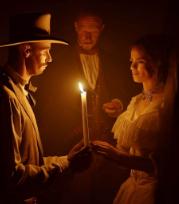
With Billy’s reputa�on as an
Outlaw, we hid him under alias on cer�ficates and other official papers. We le� the church immediately therea�er. No noise was made, so as not to a�ract any a�en�on.
We traveled by night and slept by day, hiding under homemade disguises. We stayed to the old trails and waterways, away from prying eyes and open roads. We traveled hard un�l we reached Clovis, NM, where we honeymooned.

In 1906, Santa Fe Railway engineers were ordered to locate a town-site in the newly developing ranch and farm land of Eastern New Mexico. They looked upon an unending sea of waving prairie grass reaching to the horizon in every direc�on and chose the site that would one day be called Clovis. For the �me being, however, it was known as Riley’s Switch.
We stayed at the old Hotel there for one week. We had the
Anyone who has seen an old cowboy film has almost certainly laid eyes on a large, broad-brimmed hat with a high, rounded crown. This “10 gallon hat” has been the dis�nguishing characteris�c of the tradi�onal North American cowboy.
The name implies that the hat can hold 10 gallons of liquid content. This is the most sensible and conven�onal explana�on for the name. However, the hat’s liquid holding capacity hasn’t been anywhere 10 gallons.
Most historians have concluded that the “10-gallon” aspect of the hat’s name had nothing to do with the volume of water it could hold. Instead, it is a linguis�c misinterpreta�on.
In Spanish, the term ‘galon’ refers to a braid. The hat’s brim has braids that surround it. Most hats had ten braids or ‘galons.’ This led people to begin referring to them
as a “10-gallon hat” by English speakers.
Interes�ngly, the Spanish expression “tan galan” stands for “so gallant.” This fact gives credence that “tan galan” got Americanized to “ten-gallon” to represent upper-class cowboys.
So who invented the cowboy hat? The credit commonly goes to the owner of one of the world’s largest hat firms, the John B. Stetson Company. John B. Stetson founded his company in 1865 and designed the hats that would become a widely recognized symbol of the American West.

So closely �ed is Stetson to the cowboy hat that while there are many Western brands globally, his is the most recognized.

The hat has also become a source of dichotomy in Westerns. White hats represented the “good guys,” while black cowboy hats were a way to establish characters as villains.
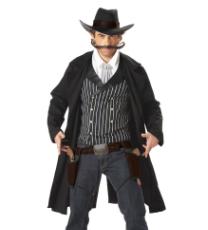
Con�nued from page 153
room at the top of the stairs on the first floor, first door to the right, just in case we had to leave quickly. We both stayed under alias. A party was held there to celebrate our union. Sorry, don’t expect to see a copy of a paper invita�on. They do not exist. It was all via word of mouth, through our chain of Outlaw and Mexican connec�ons.
The invita�ons were completely secret, but word spread quickly. Once back home, it was not long before Billy’s reputa�on again grew. He ran a lot, rarely home.
Within our first year of marriage, daughter Nabora was conceived. July of the following year, she was born. We were at the home of friends for supper. My water broke and and labor began. The women whisked me away to a bedroom. Poor Billy. He was like a caged Panther. He wanted to be in the room with me for the birth, but the women said no, Something about germs. I called for him with every contrac�on. Soon, our daughter came into this world. Billy was finally allowed in. He rushed to my side and we were
a family. Billy loved our daughter with everything in him. For her, he wanted to go straight, but other circumstances prevailed.

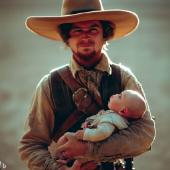

Garre�’s Goons came to our home, busted down the door and took myself and our (Daughter Nabora was then 11) and at a friend’s house, eldest boy (one of three), Patrocinio (then a baby) hostage. Praises be that he doesn’t remember any of it.
They broke up our furnishings and a year’s worth of canning and preserving. I was furious! I hissed, kicked, screamed, yelled, spat, scratched and pulled, trying to protect my home and family. They beat me bloody, but I persisted and refused to give up Billy to these intruders. When it was finally over, I grabbed my babies and ran to Pablita’s (Paulita Maxwell) home, bloody, sobbing, bruised and terrified.
When Billy returned home, seeing what was done to the children and I and our home, he saw red. Billy was then pushed to deadly anger. Looking back on it all, I cannot say I blame him.
I remember when it was �me to have the Census taken. Billy thought it all was great fun to play with the Census takers. They didn’t know any be�er and only recorded what they were told. We changed and falsified records to hide him and our family. One Christmas Holiday, we took our family to see Santa Claus in the

Con�nued from page 157

town square. When it became our turn, our three children sat on the elder’s lap and gave their wishes for the Holiday.
When Santa Claus spoke to our children in Spanish (our na�ve language), telling the children things that only we knew about our family. Billy nearly blew a gasket. He drew down on Santa Claus, demanding to know why he knew what he did about us, suspec�ng Santa Fe Ring interference. I shielded Santa Claus and our children, with Santa Claus taking it all in stride. I had to take Billy home to calm his nerves.

O�en Billy wasn’t home for the Holidays. I did manage to maintain some annual tradi�ons with our family. One Thanksgiving, Billy went hun�ng. He brought us home the biggest, fa�est Turkey that any of us had ever seen. It fed our village for months. We canned and preserved what was not eaten right away. The Maxwells butchered out Hogs, Steers and Sheep for meat too. It was a good year.
I do remember the in�mate �mes. For the sake of privacy, I omit those. I don’t kiss and tell. I remember we went to Taos, NM one year, buying and selling Ca�le and Horses for Pete Maxwell. It was said that Billy stole them. The same is simply not true at all. We stayed at the Cave behind the Falls, just a bit north of where I used to reside this life�me, at Arroyo Seco, NM.
One year when we traveled, it was bi�erly cold and snowing. We holed up in what is now known as “Ice Cave.” It was in the side of a dormant Volcano. We did get snowed in. I made a warm fire, laid out some skins for bedding, we found some provisions for something to eat and made for cozy surroundings. We dug out the next morning and departed for home the next morning.

We had traveled some through Arizona, visi�ng my family with the Navajo people and even as far south as Tucson and Casa Grande, where Billy gambled. We stayed at an Inn outside Casa Grande, AZ.
As it turns out, we were there at Census �me and we were counted, but under Alias. Our children at the �me, were there also and listed under alias.
When Billy was shot in the backside, I patched that up too. I really liquored him up good. He felt nothing for up to three days.
I remember when the much famed Photo of Billy was taken. We were having a late Supper at Beaver Smith’s. Billy and I had a hard day and we were exhausted. The Photographer just would not let things be, pestering us and our family. Billy decided it would be fun to have his photo taken and paid for the rest of us to have ours done too. I was not amused.
We did so, but not happily. This is why I look like I am scowling in my photo.
Story con�nues next page
At Mesilla, NM, when Billy was captured and taken to be tried and ul�mately hung, I had burst into the courtroom, cursed the Judge in the case, then sat and sobbed. The Judge in the case was not amused. He asked Billy: “Son, is this your woman?” Billy responded back sort of embarrassed: “Yes, your honor.” Billy turned back to me and gave me a very mischievous look.
I knew from previous experience that this meant certain trouble, but that Billy would get out of this alive. Billy reassured me that everything would be alright. When Billy was taken to Lincoln, I rode ahead, by a different and unseen route.
I brought him his things, taught Senor Gauss (what a lovely man. I adored him for his fatherly nature and knowing he would help protect Billy), to make Billy’s meals, then rented the horse that he would use to escape and hid the gun in the Outhouse. I was thrilled and relieved when Billy came home safe and alive.
This is how the day of the escape went down (Billy’s own words, plus my part in it):
When they took Billy from Mesilla to Lincoln, I rode ahead with a Wagon, Pregnant with our Son Pedro.
I took Billy Clothes, Toiletries and meal plan. When I arrived, I handed Gauss (sweetheart of a man), Billy’s things. I placed the
163 pistol in the outhouse, arranged for the blacksmith to make weaker cast iron rivets on Billy’s shackles, so he could escape more easily, and paid the rental on the horse that Billy was to escape on.

My part of the plan was in place. Now the rest was up to Billy. I wanted my Husband
home for the birth of our child.

A�er my part was done, I rode home to wait. I was Not in Lincoln at the �me of Billy’s escape. That was to protect both of us.
Billy did his part, things went as they did, he got away. When Billy went to the Outhouse, he got the Pistol I laid for him, he was going up the stairs, hit Bell with his wrist shackles, then shot him. Bell died in the street.

Billy then waited for Bob Ollinger, and we know how that went.
Con�nuednextpage
“Hello, Bob!” BOOM! Dead Bob.
“Best dollar eighty I ever spent!”
Then Billy put on quite the show, from what I recall him telling me. Gauss gave him a small pick axe and Billy cut through his shackles.
He got the rented horse, which bucked him at first.He got back on and rode for home. We later got the rest of his shackles off.
I was certainly relieved to fall into his arms.
The Trunk we had was hidden away quite well. I had hoped to be able to retrieve it, but found out recently, that Sally Chisum stole it and took it home.
The noose con�nued to �ghten around our lives on the night of Billy’s passing. The night of Billy’s passing was heart wrenching and is burned, seared into my soul and my memory for all eternity. I
f you believe that I had anything to do with Billy’s death, you would be wrong. Don’t let the story the Grand Kids would sell you turn your head. I was used to get to Billy and had no idea that anyone would harm him and I did what I could to protect Billy from harm and those who would hunt him.
We sent our kids to a family member’s home, going to the Peach Orchard for marital �me.
He was cowboying for Pete Maxwell and I had been working as a Servant. It was our last day in Fort Sumner and we were headed for Old Mexico the next morning.
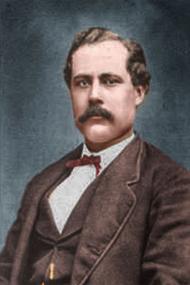
We had the wagon packed with our family’s things. I put


our overnight bag in our room where we resided.
Pete Maxwell came to me that day, complaining of not feeling well. He asked if he could lay down in our room. I gave my consent, knowing that Billy would be fine with it, so I could do healing work on him to make him well again.
Billy and I never took the same route to see each other and back. It was our way of protec�ng ourselves and each other and what we had

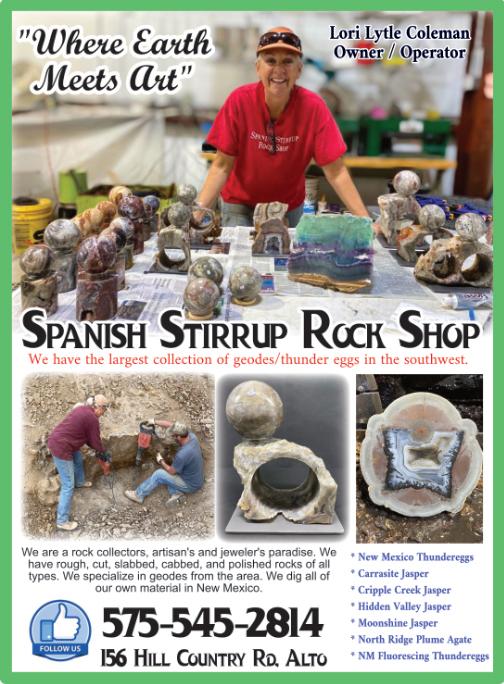
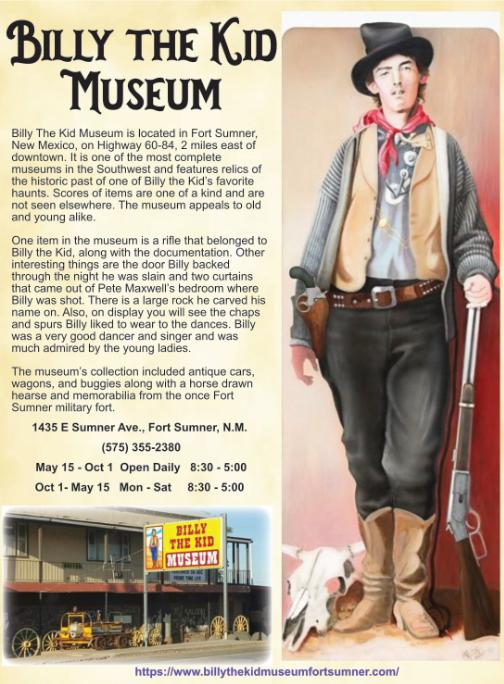

I was already making our final supper that night, by the �me that Billy finally got to the Kitchen. The children were playing quietly at my feet a�er picking them up from a family member’s home.
They saw Billy and very excitedly exclaimed: “Papi! Papi!” They ran to Billy, hugging him �ghtly. He had three kids in one arm, and me in the other. We spoke in hushed tones, so no one knew of our plans to leave.
By that �me, the fourth child, a boy, was on his way. I was around five months along with him. Billy’s passing was a set up, an ambush. I gave Billy the Knife to go get Meat as the final ingredient for that night’s Supper.

He said that he would go say goodbye to Pete, get our Over-night bag and get the Meat too.
Soon a�er he le�, I heard the shots, but thought nothing of it. I thought that it was the local rowdies tearing up Beaver Smith’s again. A youngster from town came and told me: “Senora Abrana! Senora Abrana! Billy has been killed!”
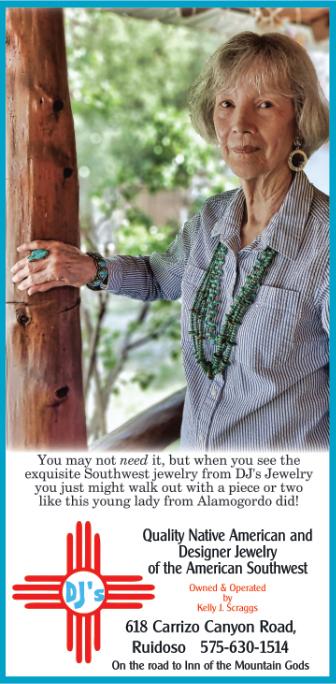
I was concerned, furious assuming that this was another of Billy’s Prac�cal Jokes, that he would be standing there laughing. As it

turns out, he heard screams, thinking that it was Pat’s goons terrorizing me again, going to inves�gate, only to find that it was Billy’s final minutes of life.
I saw everyone standing around outside Billy’s and my room, telling me that I did not want to see what was inside, talking and sobbing. I heard my Mother crying inside the room. I looked, screamed, running to Billy’s side, crying, in near hysterics.
I went to Billy’s side, the blood soaking into my night dress. Billy assured me that it didn’t hurt and he took his final
breath in my arms. I screamed, cried, begged Billy not to leave me. My Mother and I beat the snot out of Pat Garre� and cursed him and his name.
It was absolutely the worst day of my existence. I paid for
Continued from page 169
the funeral and the wake. It was a very difficult �me. It was then that I realized that I was truly alone. It cost me all that I had saved over those eleven years of marriage.
Billy the Kid was shot and killed July 14, 1881. He would have been 10 years old when supposedly married.
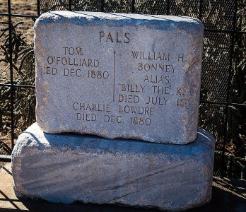
A more sickening sight I had never seen before nor do I ever wish to see again. Blood, Bone, Tissue, all over the hardwood floors.
Three of four children grew up to live normal lives. Only Patrocinio turned out to be the wild child. He wanted to live to his dad’s reputa�on. He lived a fast and wild life and finally died of cirrhosis of the liver. There is more, but I think that I will leave that up to the descendants.
History may not list my name in most all accounts of Billy’s life, remaining hidden in the shadows. I am now speaking out at long last, telling all that I know.
Quite soon a�er arriving in Wichita, Catherine McCarty set up a hand laundry service in a two-story building on North Main Street. She also began buying and selling town lots and was involved in at least a dozen transac�ons.
By March of the following year, her laundry was sufficiently well established to be included in a roster of the town's mercan�le establishments, published in the very first issue of the Wichita Tribune:

The City Laundry is kept by Mrs. McCarty, to whom we recommend those who wish to have their linen made clean.

Despite excelling in business, by August 25, 1871, the family would sell their lots and depart Wichita.
A�er this, the McCarty-Antrim clan disappeared from record for two years. They appeared again on March 1, 1873, at the First Presbyterian Church in Santa Fe for the marriage of Catherine and William Antrim.
Below is the clipping from the Wichita Tribune- March 15, 1871
Lincoln Historic Site is unique in that it manages most of the historical buildings in the community of Lincoln. This most widely visited state monument in New Mexico is part of a community frozen in time—the 1870's and 1880's. The historic site includes 17 structures and outbuildings, 7 of which are open year round and 2 more seasonally as museums. Most of the buildings in the community are representative of the Territorial Style of adobe architecture in the American Southwest.
Lincoln is a town made famous by one of the most violent periods in New Mexico history. Visitors can see the Old Lincoln County Courthouse with exhibits that recount the details of the Lincoln County War and the historic use of the "House" as store, residence, Masonic Lodge,

courthouse, and jail. Walk in the footsteps of Billy the Kid, Pat Garrett, and other famous and infamous characters of the Wild West.
The Tunstall Store contains displays of the original 19thcentury merchandise in the original shelving and cases. Walk through history by visiting El Torreón (a defensive tower built by New Mexican settlers in the 1850s), the San Juan Mission Church, Dr. Woods' House, the Montaño store and other historic structures .
TheAnderson-Freeman Visitor's Center & Museum features historical exhibits starting withAmerican Indian prehistory and ending with the Lincoln County War.A22 minute video about the Lincoln County War and the community is shown every half hour.

The 17 structures that comprise Lincoln Historic Site. These historic adobe and stone buildings are preserved as they were in the late 1800s and represent the factions involved in the Lincoln County War, 1878-1881.
Thursday through Monday, 10 a.m. to 4 p.m.; closed Tuesday and Wednesday
$7 for adults. Free for children 16 years and younger. NM residents with ID admitted free the first Sunday of every month.





